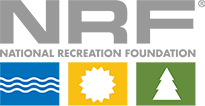Our Grants
2024-2025 Outdoor Grants
In 2024, the National Recreation Foundation awarded 35 Outdoor Grants totaling $771,000.
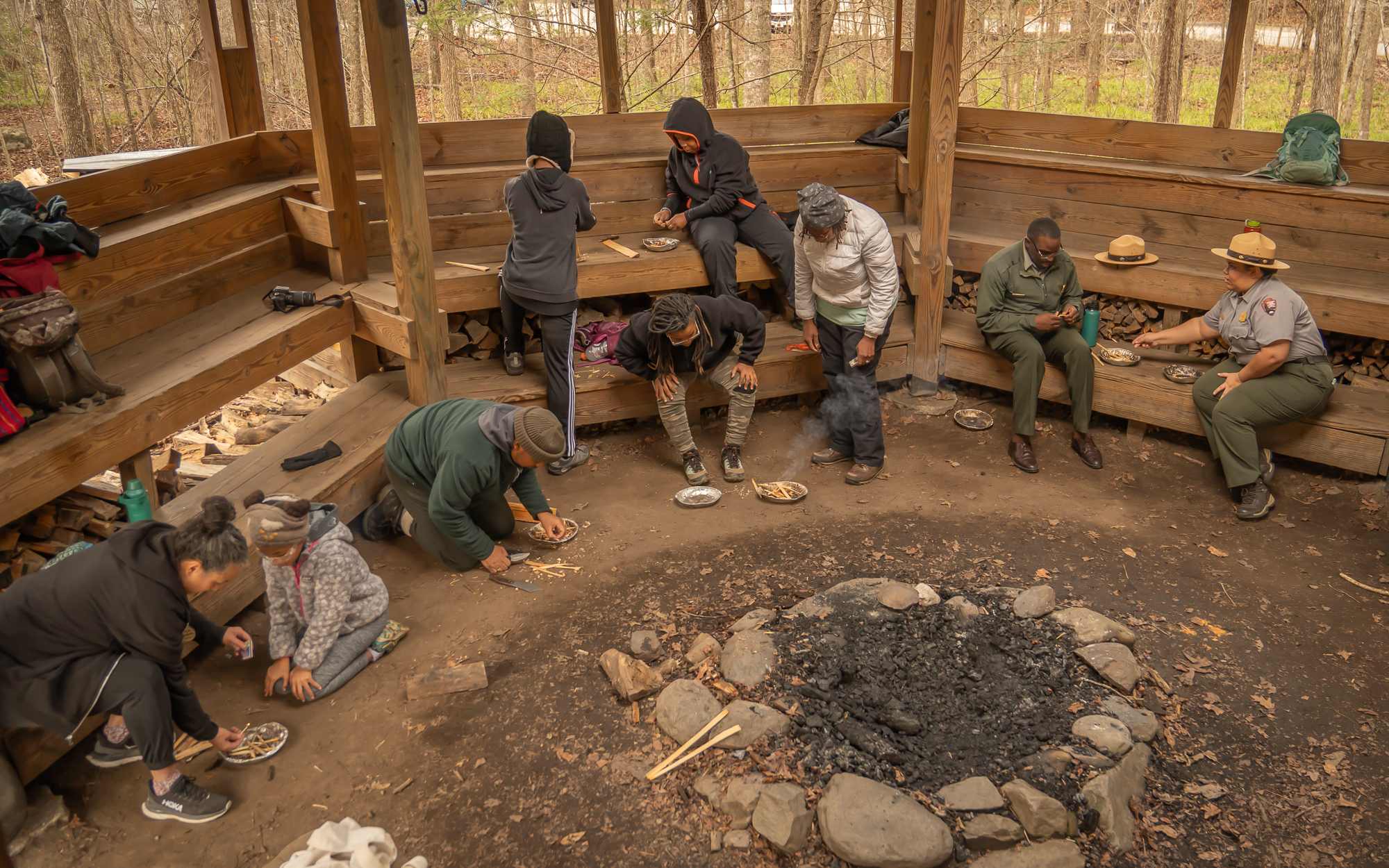
Black Kids Adventures
- Alabama
- Website: blackkidsadventures.org
- Grant amount: $20,000
Black families face various barriers to outdoor recreation, including safety concerns, cultural disconnect, and lack of representation. These challenges contribute to lower participation in outdoor activities, as many families are unaware of or lack access to these opportunities. According to the latest Outdoor Industry Association’s annual report, Black people account for only 10.3% of all outdoor activity participants. While that number is on the rise, more work is needed to ensure that Black people feel welcomed and supported in outdoor spaces. Black Kids Adventures (BKA) works to address this need through its Family Camp program. The program provides families with immersive experiences that build confidence in outdoor activities, develop essential skills, and build connections with nature and each other. By offering early exposure to outdoor recreation, children and their families engage in activities that promote trust, teamwork, and growth. Through a mix of tent and cabin camping, the Family Camp program ensures accessibility for families with varying experience levels. Activities include guided hikes, Leave No Trace education, campfire building, wildlife education, and paddling safety.
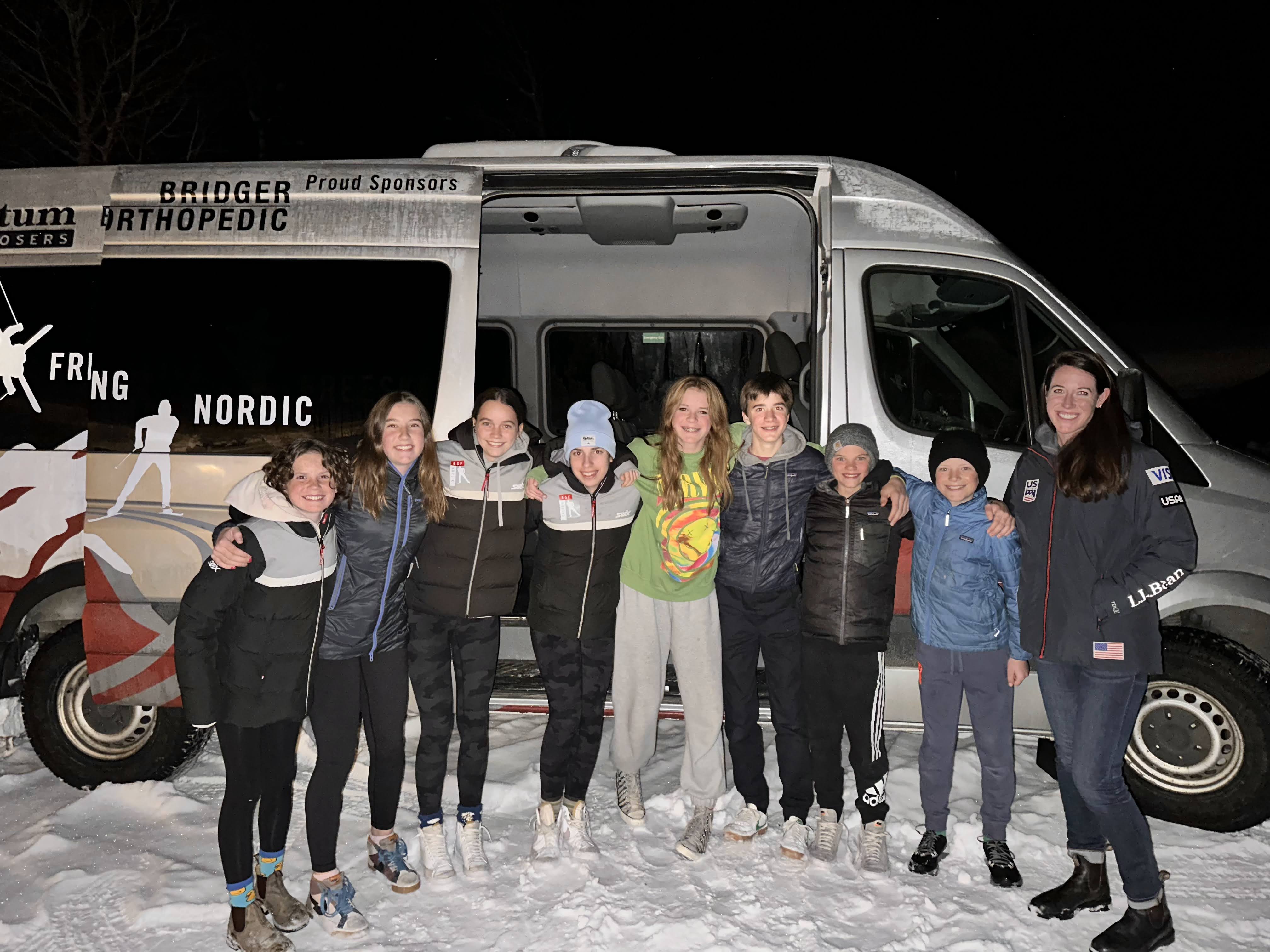
Bridger Ski Foundation
- Montana
- Website: bridgerskifoundation.org
- Grant amount: $15,000
Bridger Ski Foundation (BSF) inspires a lifelong love of skiing by fostering personal growth, athletic development, and community wellness through accessible skiing and winter trail stewardship. It offers winter recreation opportunities to students each year, through free and open access to 80 kilometers of in-town groomed trails (including Nordic tracks at both local middle schools) and transportation to after-school and weekend practices, training camps, and competition venues.
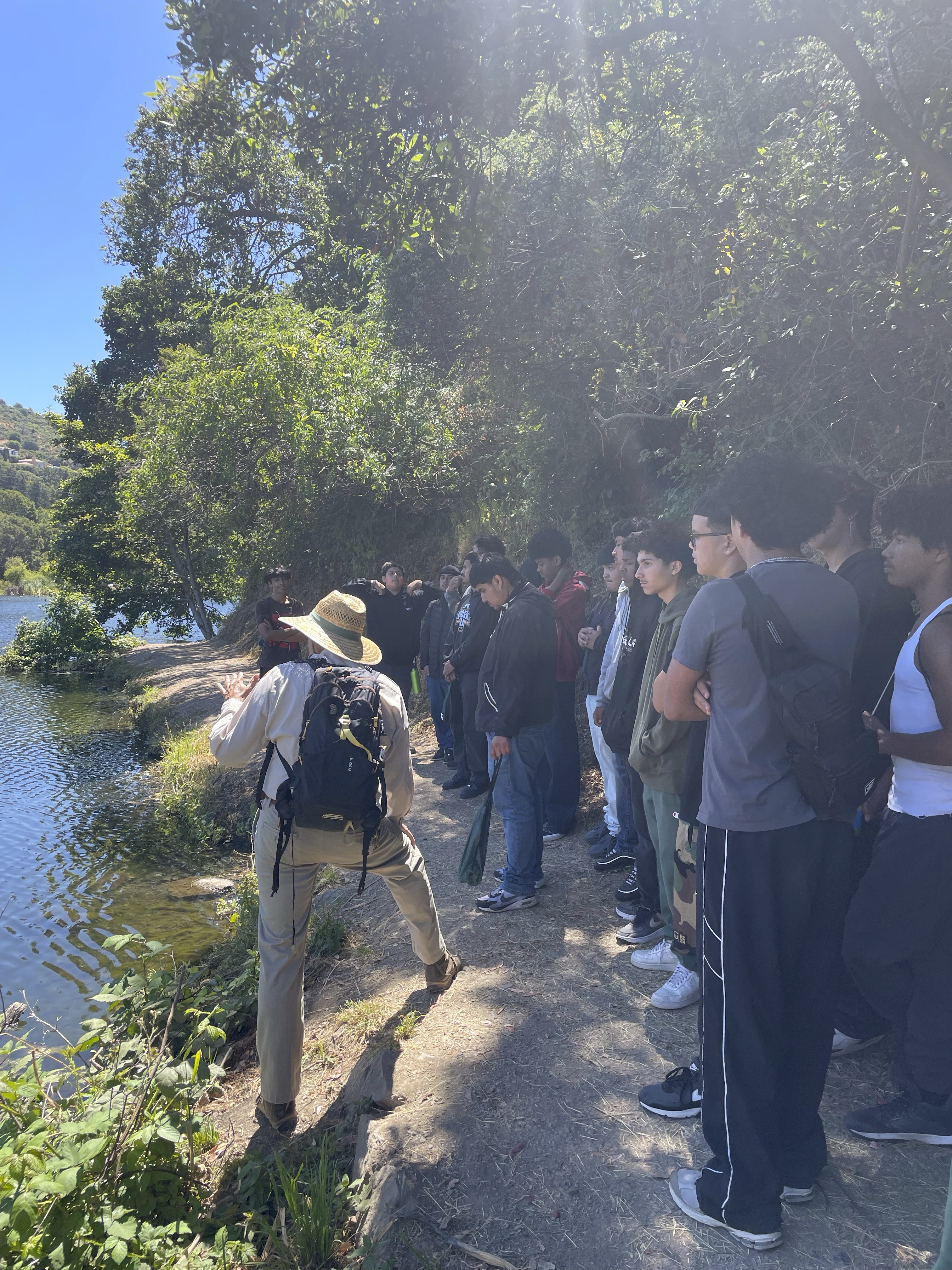
Brothers on the Rise
- California
- Website: brothersontherise.org
- Grant amount: $20,000
Brothers on the Rise (BOTR) works to empower Oakland boys and young men of color to become stewards of local and regional green areas, while also contributing to their confidence, conflict resolution and coping skills, and career awareness. BOTR’s Trail Brothers programming provides boys and young men of color hands-on environmental learning and access to green spaces. It also serves as a peaceful and grounding respite from stressors faced within the urban environment. Through Trail Brothers, the youth grow to understand a powerful species of tree (redwoods) that, like the young people themselves, stand tall and proud in the face of many obstacles to their survival. Participants also learn about their responsibility to protect green areas through tree care, habitat restoration, community service, social action and culturally grounded rites of passage and manhood training. Exposure to careers in environmental education through BOTR facilitated internships increase chances that the youth would pursue these professions in the future.
.jpg)
Brown Girls Climb
- California
- Website: browngirlsclimb.com
- Grant amount: $20,000
Young girls and non-binary individuals of color are underrepresented in outdoor activities, particularly within the realm of climbing which perpetuates a lack of diversity in outdoor communities and hinders the growth of a more inclusive and representative outdoor culture. Brown Girls Climb (BGC) strives to facilitate mentorship, provide access, uplift leadership, and celebrate representation in the outdoors and climbing for People of the Global Majority. BGC’s Youth Program creates a unique opportunity for young individuals of color to gain essential outdoor rock-climbing skills. Activities of the program incorporates Leave No Trace principles and teaching participants the importance of responsible and sustainable outdoor practices. Simultaneously, it weaves in education on Black and Indigenous history, providing a cultural context for the youths’ outdoor experiences. This holistic approach not only builds outdoor competency but also fosters a sense of connection to the natural environment and cultural heritage, which empowers participants to become leaders in the climbing community. BGC partners with National Girl Scouts programs and helps them achieve their adventure badges, and is growing its programming with increased instruction geared towards an expanded age range of 6-24 years old.
Catamount Institute
- Colorado
- Website: catamountinstitute.org
- Grant amount: $21,000
Catamount Institute's (CI) YES Club is a subsidized program providing connection to outdoor nature and recreational activities to youth that wouldn't otherwise have the opportunity due to access barriers. YES Club’s overarching goal is to use experiential environmental education and recreation to foster knowledge, appreciation and stewardship of natural resources, while providing a safe after school opportunity. Participants build confidence and skills and are encouraged to engage in an active outdoor lifestyle in recreation and adventure. YES Club is offered through a robust collaboration between CI, school districts, and community-based organizations. By providing YES Club as an after-school program, CI engages schoolteachers, provides a curriculum that complements school lessons, and connects participants to the outdoors.
.jpg)
Center for Recreation Education Arts Technology & Enterprise
- Georgia
- Website: createwithus.org
- Grant amount: $20,000
The Center for Recreation Education Arts Technology & Enterprise (CREATE) addresses the critical lack of accessible outdoor experiences for youth from economically disadvantaged communities in Baldwin County. Many of these youth lack opportunities to engage with nature, develop life skills, and build resilience through adventure-based learning. CREATE addresses this through its Outdoor Recreation initiative, which empowers youth through adventure, skill-building and personal growth to ignite their potential and guide them toward a brighter future. CREATE is working to expand, sustain, and strengthen its outdoor recreation programing so that more youth (ages 9-21) can access transformative outdoor experiences and by expanding its capacity for adventure-based learning (cycling, camping, paddling and survival skills) and purchase more bikes (allowing more students to participate in long-distance cycling). To ensure safety and leadership development, CREATE is also providing advanced certifications challenge course and first aid/CPR opportunities.
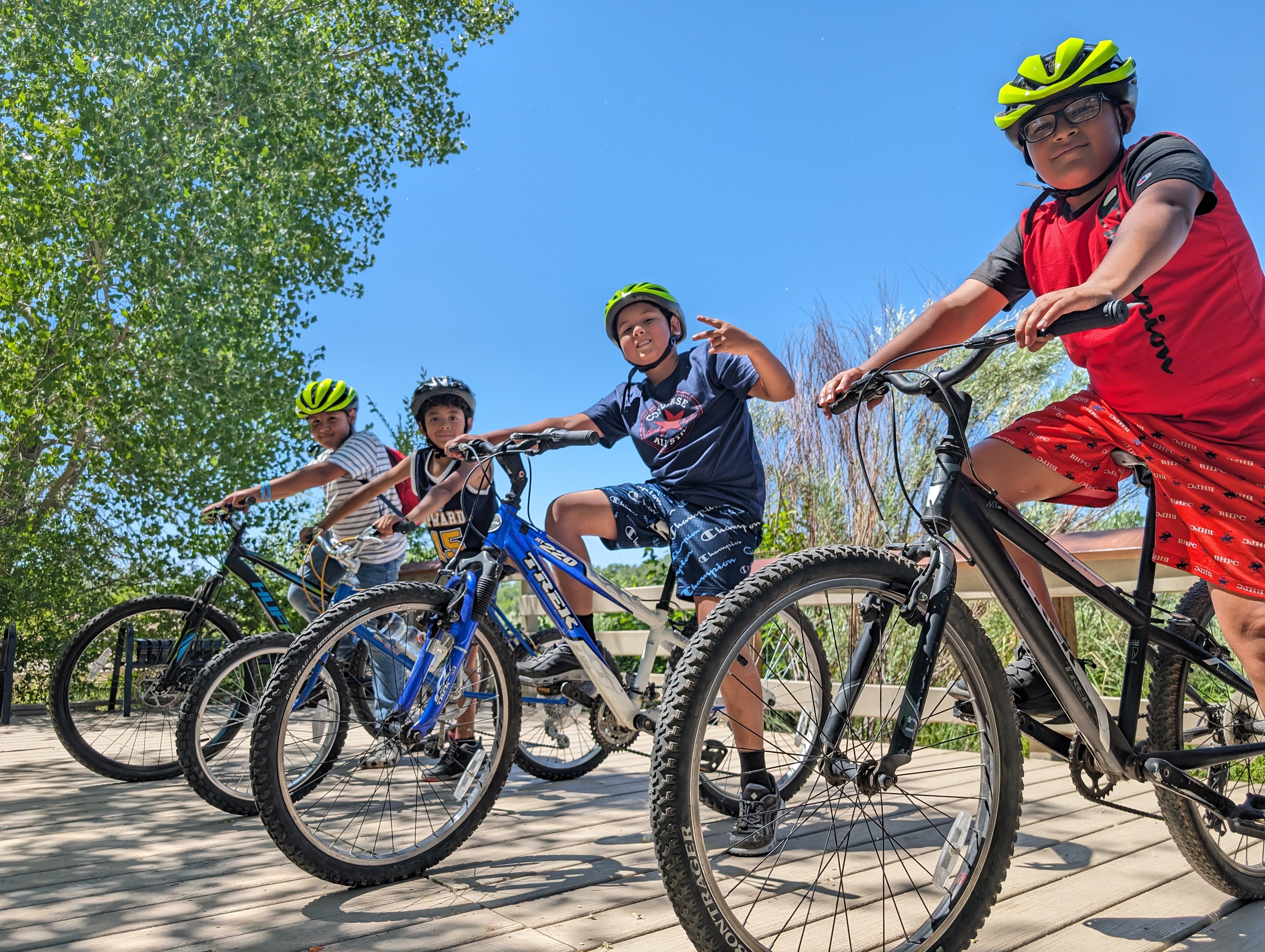
The Center of Southwest Culture
- New Mexico
- Website: centerofsouthwestculture.org
- Grant amount: $15,000
The Center of Southwest Culture (CSC) works to develop healthy Indigenous and Mexicano/Chicano communities through economic development and cultural educational programs. CSC takes a linguistically and culturally supportive approach that is centered on cultural lifeways, traditional knowledge, and existing resources to increase overall community health. New Mexicans have always relied on the land to sustain communities and families and to facilitate Indigenous learning. However, many of the communities have lost their daily connection to their natural traditional environments due to climate impact, increased reliance on technology, and/or economic barriers. CSC’s Story Riders program is designed to address the critical need for children and youth of color to reconnect with the natural and cultural abundance of New Mexico. CSC provides practical training in bike safety/maintenance and guided cycling experiences, so youth can explore local stories and spaces while building agencies, personal health tools, and connecting to land and language. This place-based learning approach helps the youth develop critical thinking and self-awareness by examining current environmental issues and local history through interviews and activities with elders and artists.
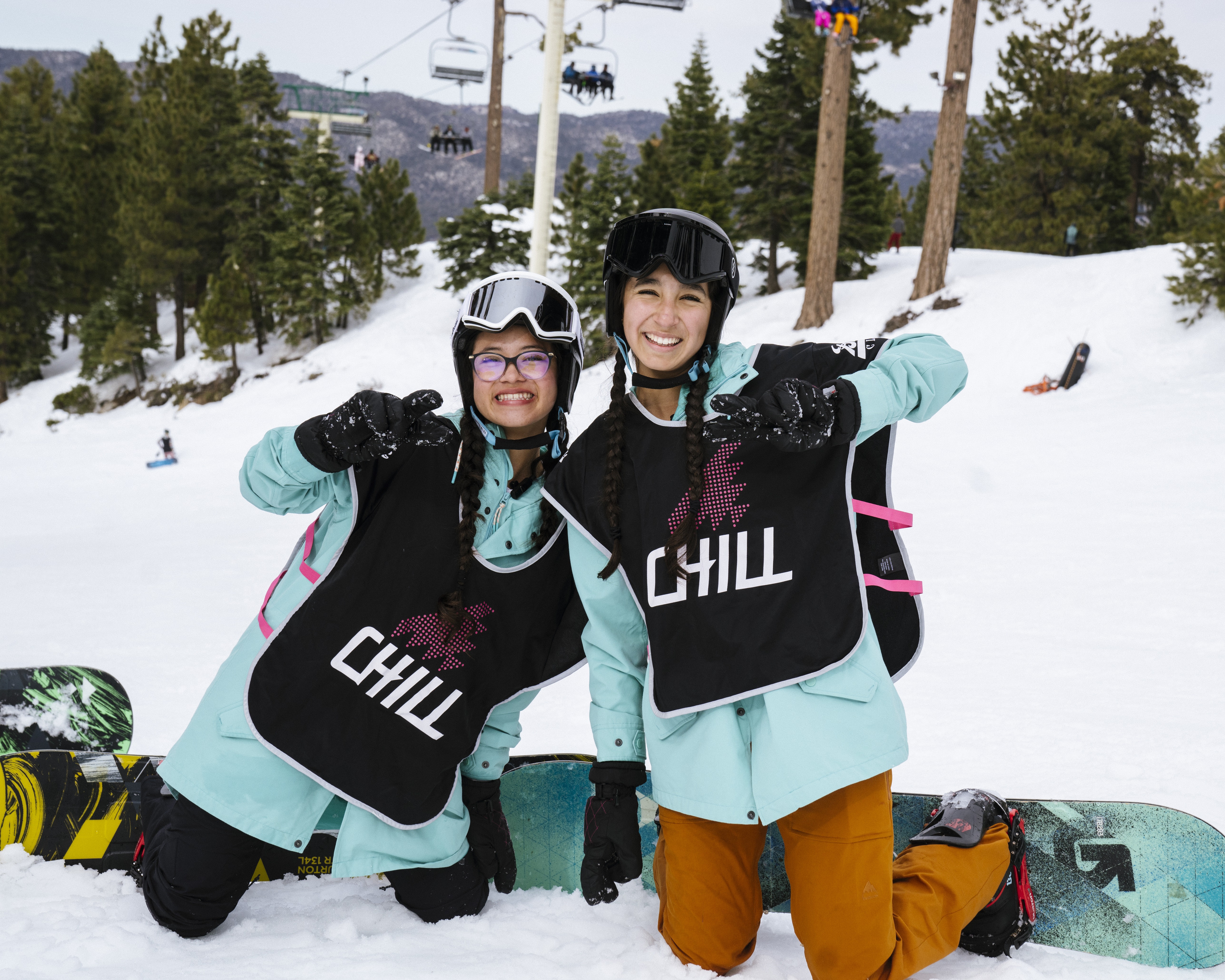
Chill Foundation
- Vermont
- Website: chill.org
- Grant amount: $30,000
Many young people living in urban areas encounter financial and societal barriers to accessing natural spaces and recreation. Chill Foundation (Chill) recognizes that board sports, especially snow sports, are not easily accessible for many young people due to both financial and societal barriers to access. Chill wants all youth to experience the wonders of the natural environment and the positive impacts of learning new skills in a safe and supportive setting. Its no-cost programs break down these barriers, so that any young person, regardless of background or circumstances, can participate and see themselves in a community of riders. Chill’s positive youth development snowboarding programs in Portland, OR, Reno, NV, Tahoe, CA, and Salt Lake City, UT, support young people, ages 11-19.
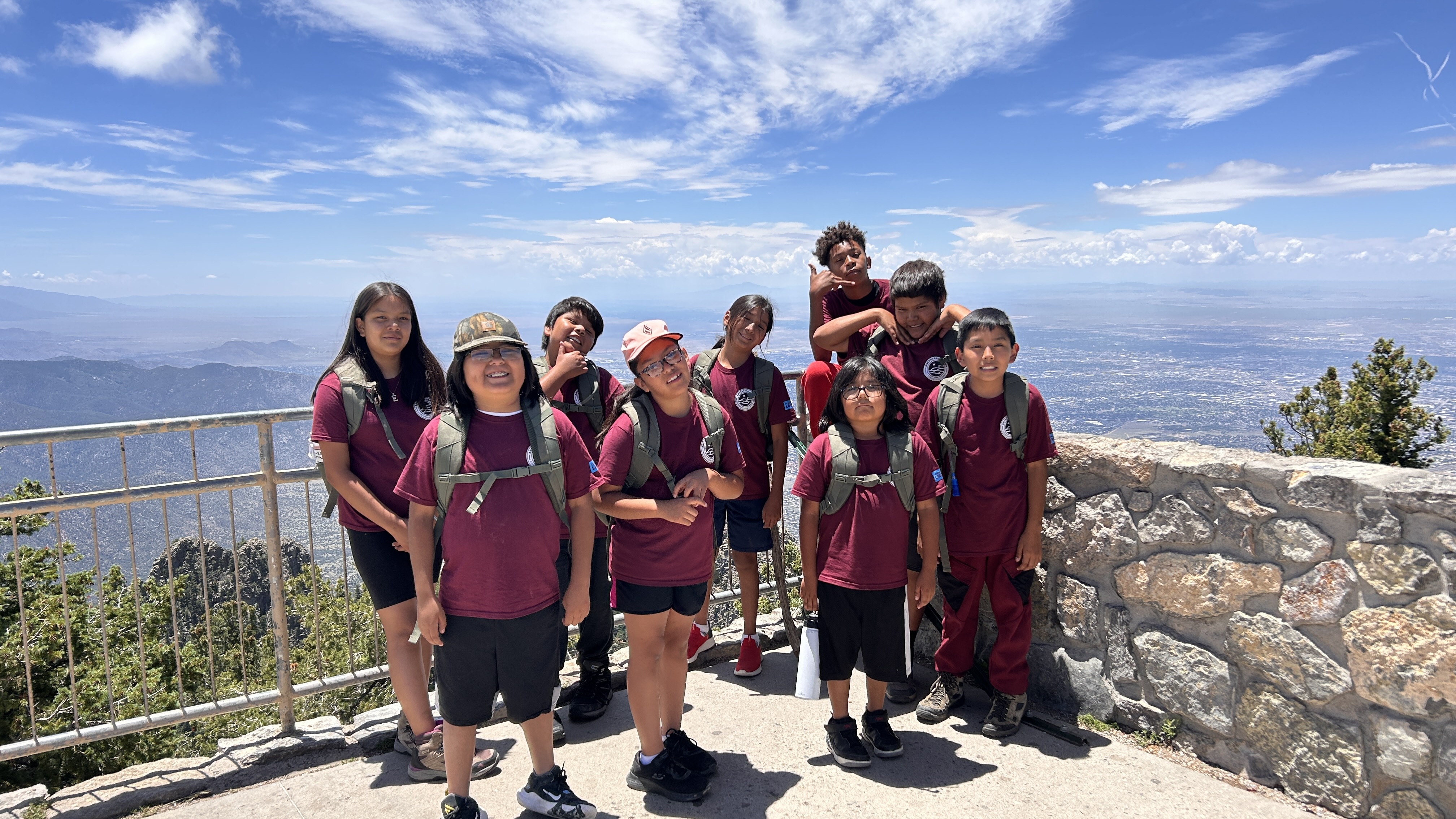
Conservation Legacy
- New Mexico
- Website: ancestrallands.org
- Grant amount: $20,000
Ancestral Lands Conservation Corps (ALCC), a program of Conservation Legacy, annually offer paid opportunities and volunteer positions for Indigenous youth and young adults in fulfilling outdoor experiences that offer reconnection to their land, culture, and heritage while also providing life skills and personal development to support their personal and community long-term success. Community projects include ALCC’s Historic Preservation Program (which preserves ancestral knowledge by engaging Indigenous youth and young adults in restorative and protective practices of sacred sites and areas); Hiking and Explore Clubs (that introduce elementary-aged youth to the land to foster curiosity and stewardship of the environment, which is the first step in supporting the next generation of Indigenous leaders); and Traditional Farm Corps (which facilitates the preservation of traditional agricultural skills and reconnects Indigenous young people to their heritage while addressing community needs around food sovereignty, seed saving, and health and nutrition).
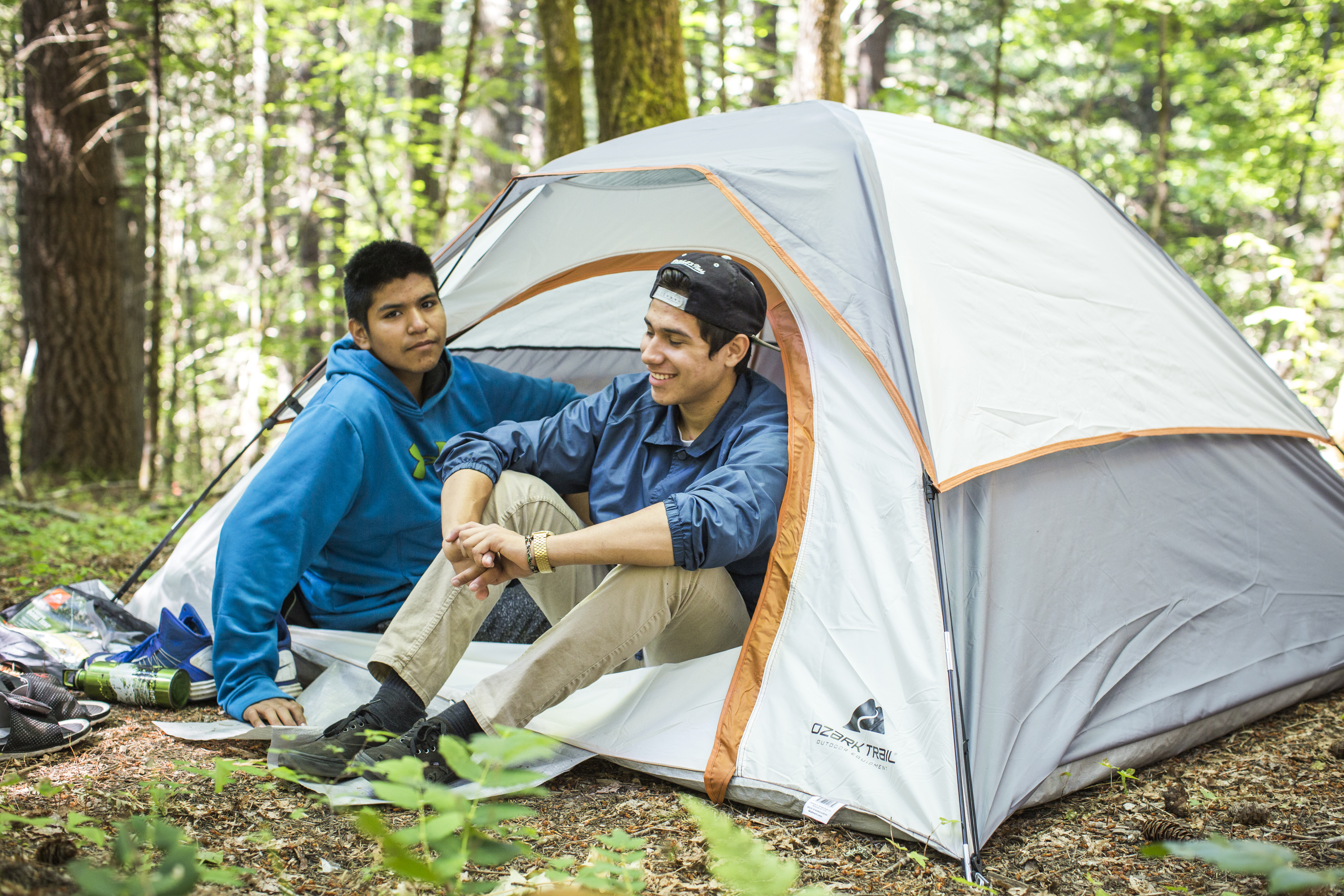
CultureSeed
- Washington
- Website: cultureseed.org
- Grant amount: $30,000
The Columbia Gorge region of the Pacific Northwest is one of the largest national scenic areas in the United States. Despite being an area where people from around the world come to recreate, the rural communities surrounding the Columbia Gorge, which are predominantly Latinx, face pronounced economic disparities. CultureSeed works to strengthen connection to the community and to nature while addressing youth mental health issues. CultureSeed creates a supportive environment that empowers youth, ages 13-18, to navigate challenges they may face during their formative teenage years through: outdoor experiences and multi-day immersions (including hikes, camps, river trips and a variety of other outdoor experiences and adventures), outdoor economic opportunities, weekly peer circles, counseling and therapy, and access funds in order to connect youth with nature and to promote mental well-being and resilience. Local youth attend free and ongoing year-round outdoor programming and can return year-after-year until they graduate high school.
Diné WE CAN
- Arizona
- Website: sihhasinbikeride.com
- Grant amount: $20,000
The SiiHasin Bike Program, supported by Diné WE CAN, promotes the healthy development of youth and community members on the Navajo Nation. Focused on bicycling, the program emphasizes goal setting, healthy lifestyles, and kinship (K’e) through a three-part bike series that uses cycling as a tool for personal growth and development. Guided by community elders, participants gain essential skills for healthy identities, empathy, and responsible decision-making as well as social and emotional learning through cultural activities. Additionally, the program connects Diné youth to nature through bike rides and bike-packing on Diné Bikéyah, promoting Hózhó in their environment. The program is the only bike program in the southwestern Navajo reservation.
.jpg)
Elevate Youth
- Massachusetts
- Website: elevateyouth.org
- Grant amount: $20,000
Elevate Youth (EY) works to break down systemic barriers to outdoor access, diversify outdoor spaces, and create opportunities for positive mentoring relationships in Greater Boston. Its impact centers on creating self-efficacy in youth, a sense of belonging in natural spaces, and empowering the next generation of diverse environmental stewards and leaders. EY is amplifying its impact by extending programming to overnight camping and backpacking, full-day ocean sailing and kayaking trips, and full-day environmental service experiences. Through its Summer Voyagers Program, EY provides youth, ages 9-16, with a week of these innovative day trips in and around the Boston area, and with a culminating overnight camping trip. The youth experience immersive nature opportunities during the summer months, solidify the skills and lessons learned throughout the school year, and open up pathways for further engagement in nature. The programs offer a progressive learning curriculum to introduce students to outdoor activities, such as hiking, skiing, fishing, kayaking, rock climbing, and more, while being supported by adult mentors and EY staff. By introducing kids to a diverse range of outdoor recreational activities, the youth are given the chance to find an outdoor activity they would like to pursue further.
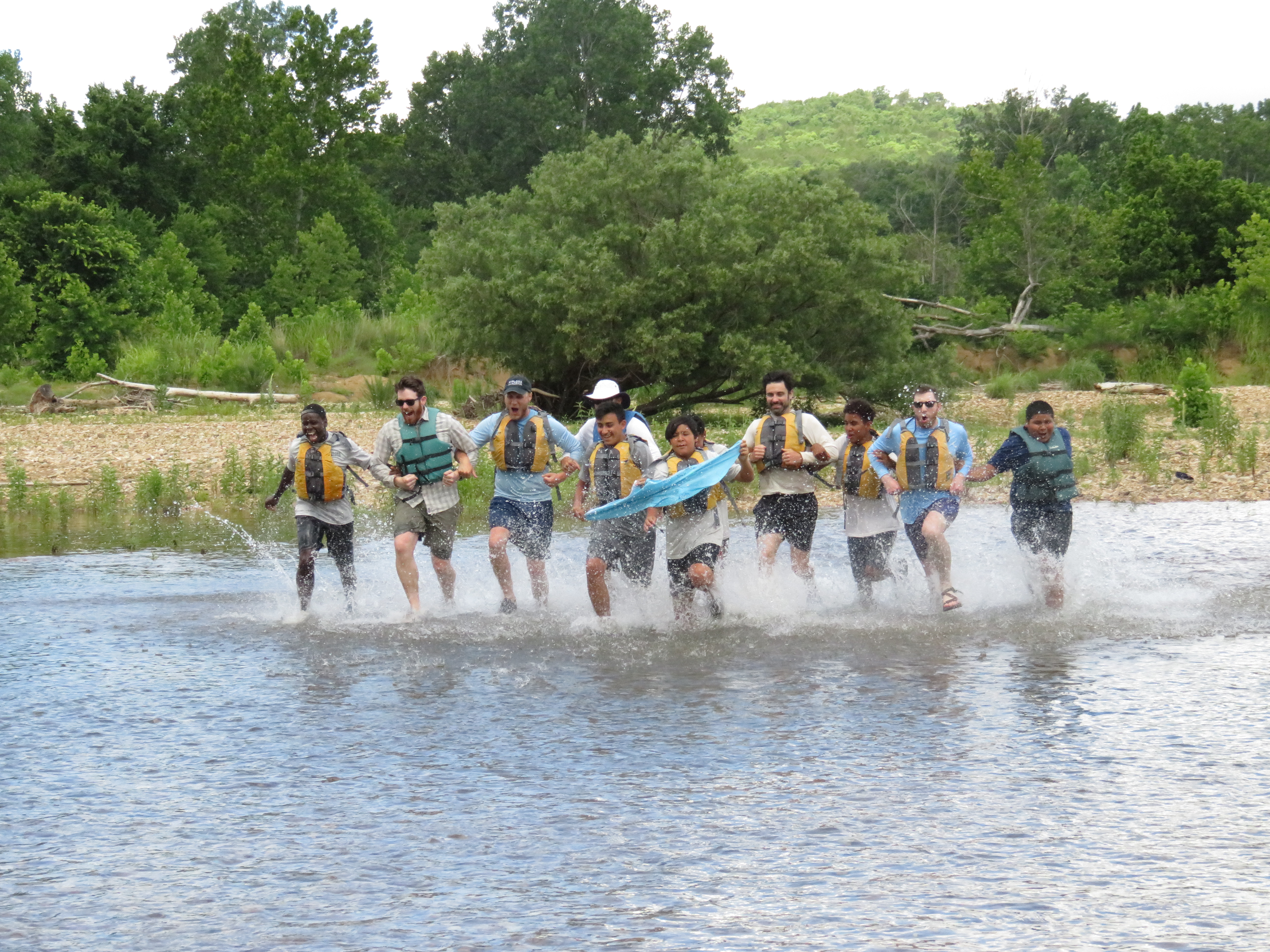
Explore Austin
- Texas
- Website: exploreaustin.org
- Grant amount: $30,000
The youth served by Explore Austin live in economically and racially segregated neighborhoods, where members of these communities are underrepresented in outdoor recreation and face barriers to accessing nature. Through outdoor adventure and long-term mentorship, Explore Austin supports adventurous youth from these communities as they develop into confident and courageous adults. Its free, six-year program connects Explorers (grades 6-12) with caring mentors to cultivate authentic relationships and self-discovery through teamwork and outdoor adventure. Over the six years, a youth Explorer spends 1,100 hours in nature, being physically active, developing social-emotional competencies, and boosting their mental health, alongside supportive mentors. Explore Austin facilitates trust and belonging by creating a safe space to try and do hard things. As Explorers gain technical skills through backpacking, climbing, biking, and canoeing, they develop confidence, integrity, and courage to pursue their own version of success.
.jpg)
Friends of Organ Mountains-Desert Peaks
- New Mexico
- Website: organmountainsdesertpeaks.org
- Grant amount: $15,000
Through its Moving Montañas program, Friends of Organ Mountains-Desert Peak (FOMDP) works with schools to leverage outside resources (and proximity and knowledge of 500,000 acres of outdoor recreational opportunities), partnership networks, and funding to connect community youth to the outdoors through immersive, educational, and safe programming. After-school activities are self-directed by the middle and high school students and include hikes, camping, bikes, and rock climbing. Summer Programming offers week-long day camps designed around different themes and age ranges. The fall and spring break camps are the newest addition to FOMDP’s programming. These camps fill a gap for local youth, as recent changes in the school calendar created a two week break in both the fall and spring semesters. FOMDP also has a growing mountain bike program where students learn the basics of mountain biking. All Moving Montañas programs connect youth to mentors in their community and create opportunities for older students to step into leadership roles around the protection of public lands.
Gallatin Gateway Youth Group
- Montana
- Website: gatewayyouthgroup.org
- Grant amount: $10,000
Gallatin Gateway is a small, rural community 12 miles southwest of Bozeman. The community’s rural location, coupled with a commuting population of parents who work in surrounding areas (including Big Sky, Bozeman, and Belgrade) creates a void in opportunities for after-school or summer programs that keep students engaged. Gateway Youth Group (GYG) addresses this void by providing programs, scholarships, and activities for all Gallatin Gateway's youth to learn, develop leadership skills, and engage in community service. GYG’s Middle School Leadership Summer Camp provides a two-night, three-day Wilderness Overnight Camp experience to Gallatin youth, which connects youth with the outdoors and fosters an appreciation for nature and the local environment. By providing this opportunity, GYG cultivates a deeper sense of community and belonging, while also builds confidence and imparts new skills. The program includes transportation to the wilderness camp, rental of camping equipment for students in need, and supplies such as fishing gear, which ensures that all participants can fully engage in the outdoor experience.
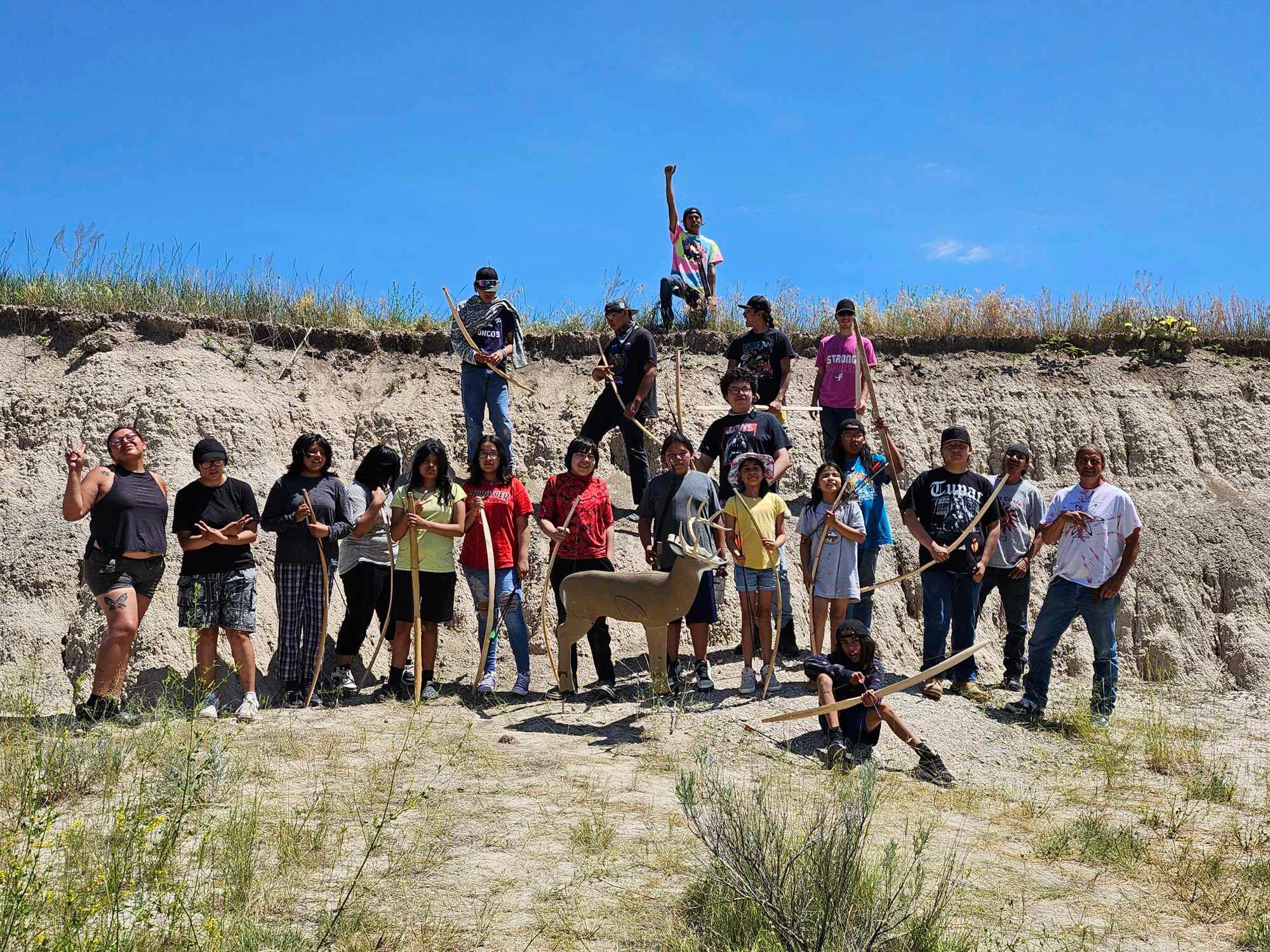
Generations Indigenous Ways
An affiliate of Seventh Generation Fund for Indigenous Peoples
- South Dakota
- Website: giways.org
- Grant amount: $10,000
Generations Indigenous Ways provides positive, culturally appropriate programming, and a safe place for youth to excel in STEM education and discovery at the Pine Ridge Reservation and its surrounding areas. Its Lakota Summer Science Field Institute is a four-week program that is offered to participants ages 11-18 years old that reside within Lakota Territory. The goal of the program is to motivate youth to discover and explore science, technology, engineering, and math. Participants learn how physics, mathematics, and the scientific methods are required and used in designing a traditional bow; harvesting traditional plants and foods; water and air quality; and creating traditional beadwork and quillwork. Other learning topics that supplement the STEM curriculum include Astronomy, Paleontology & Geology, and a Tipi erecting presentation.
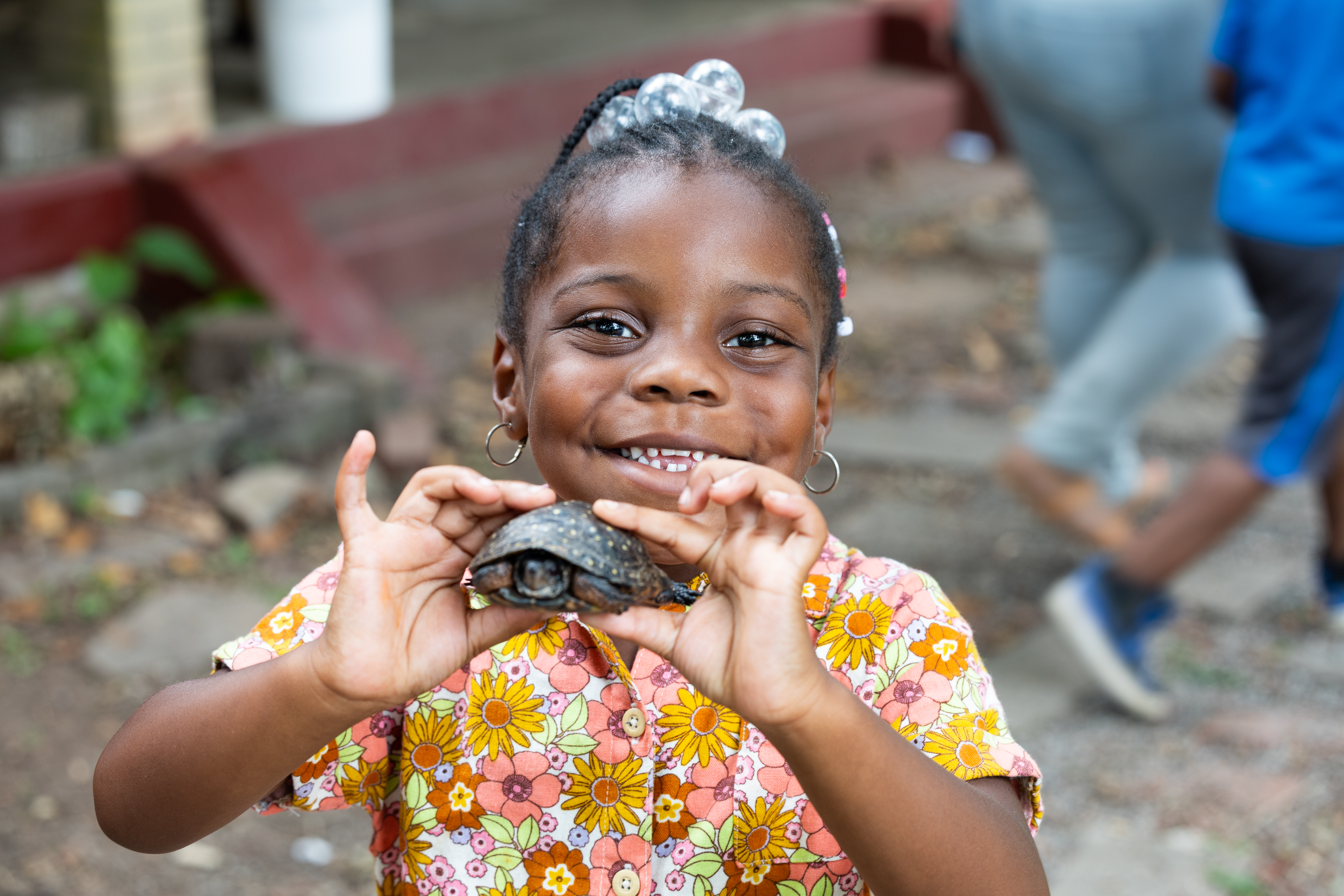
Greening Youth Foundation
- Georgia
- Website: gyfoundation.org
- Grant amount: $10,000
Knowing how to swim is a prerequisite to safe, outdoor, aquatic recreation. According to a 2021 national study conducted at American YMCAs by the USA Swimming Foundation and University of Memphis, 64% of Black children cannot swim (in comparison to 40% of Caucasian children). Greening Youth Foundation (GYF) is working to address this issue by engaging youth from Atlanta’s Adamsville and Oakcliff neighborhoods in swimming; environmental education about rivers, lakes and streams; and visits to natural areas outdoors. Through these activities, GYF plans to increase community access to outdoor waters and ultimately increase stewardship of Georgia’s streams, lakes, and rivers by members of these underserved communities.
GTG Outdoors
- Texas
- Website: gtgoutdoors.org
- Grant amount: $30,000
GTG Outdoors "Families Around the Fire" pilot program, is a mentorship program specifically designed for BIPOC families. The program promotes time in nature through a series of bi-weekly meetings covering essential outdoor skills and experiences. From "Leave No Trace" principles and outdoor cooking to wildlife education, the curriculum is crafted to foster appreciation, skills, and a sense of belonging in the natural world. Additionally, the program addresses the need for cultural inclusivity and safety in outdoor spaces, aiming to break the cycle of environmental disconnection and build a community that values and actively participates in conservation efforts. For families seeking deeper engagement, an extended six-month backpacking mentorship offers specialized training in backcountry skills, ensuring families are well equipped to explore nature independently. "Families Around the Fire" isn’t just an outdoor mentorship program—it's a strategic initiative to reconnect BIPOC families with nature, addressing both the symptoms and root causes of disengagement, and empowering them to claim their space in the great outdoors while fostering a sustainable relationship with the environment.
Gulf Specimen Marine Lab
- Florida
- Website: gulfspecimen.org
- Grant amount: $10,000
Many children from economically disadvantaged backgrounds lack opportunities to engage in hands-on, nature-based learning experiences that foster a deep connection to the natural world. This gap not only limits their understanding of marine ecosystems but also restricts their ability to develop a sense of environmental stewardship. The Gulf Specimen Marine Lab addresses this critical need for equitable access to environmental education by offering scholarships to campers from low-income backgrounds. The scholarships cover camp fees, making the camp accessible to those who might otherwise be unable to attend. This initiative empowers a diverse group of young participants, equipping them with the knowledge and inspiration to protect and preserve marine environments. The camp is staffed by experienced marine biologists, educators, and volunteers who ensure that activities are both educational and fun.
La Semilla Food Center
- New Mexico
- Website: lasemillafoodcenter.org
- Grant amount: $10,000
La Semilla Food Center’s (LSFC) mission is to foster a healthy, self-reliant, fair, and sustainable food system in the Paso del Norte region, which includes Southern New Mexico, El Paso, Texas, and Ciudad Juárez, Mexico. Through its six community-centered and land-based programs (Community Farm, Farm Fresh, Edible Education, Community Education, Policy, and Storytelling), LSFC builds relationships and creates empowering spaces for youth and families to grow and cook healthy food, create positive change, and foster connections among nature, health, foodways, and local economies. Its Food and Farm Youth Apprenticeship program provides opportunities for youth to form deep connections with the Chihuahuan Desert via experiential, land-based educational training. Led by its Community Farm and Community Education program, LSFC is building on an existing framework that provides interested youth and young adults with intensive training in farm production, urban gardening, agroecological practices, and foraging of native plants and desert foods. The apprentices also serve as Crew Leaders for La Semilla Food Center’s Raíces Youth Program, which guides participants (ages 14-22) to explore how food and methods of production are intrinsically tied to the health and wellbeing of a community and local economies.
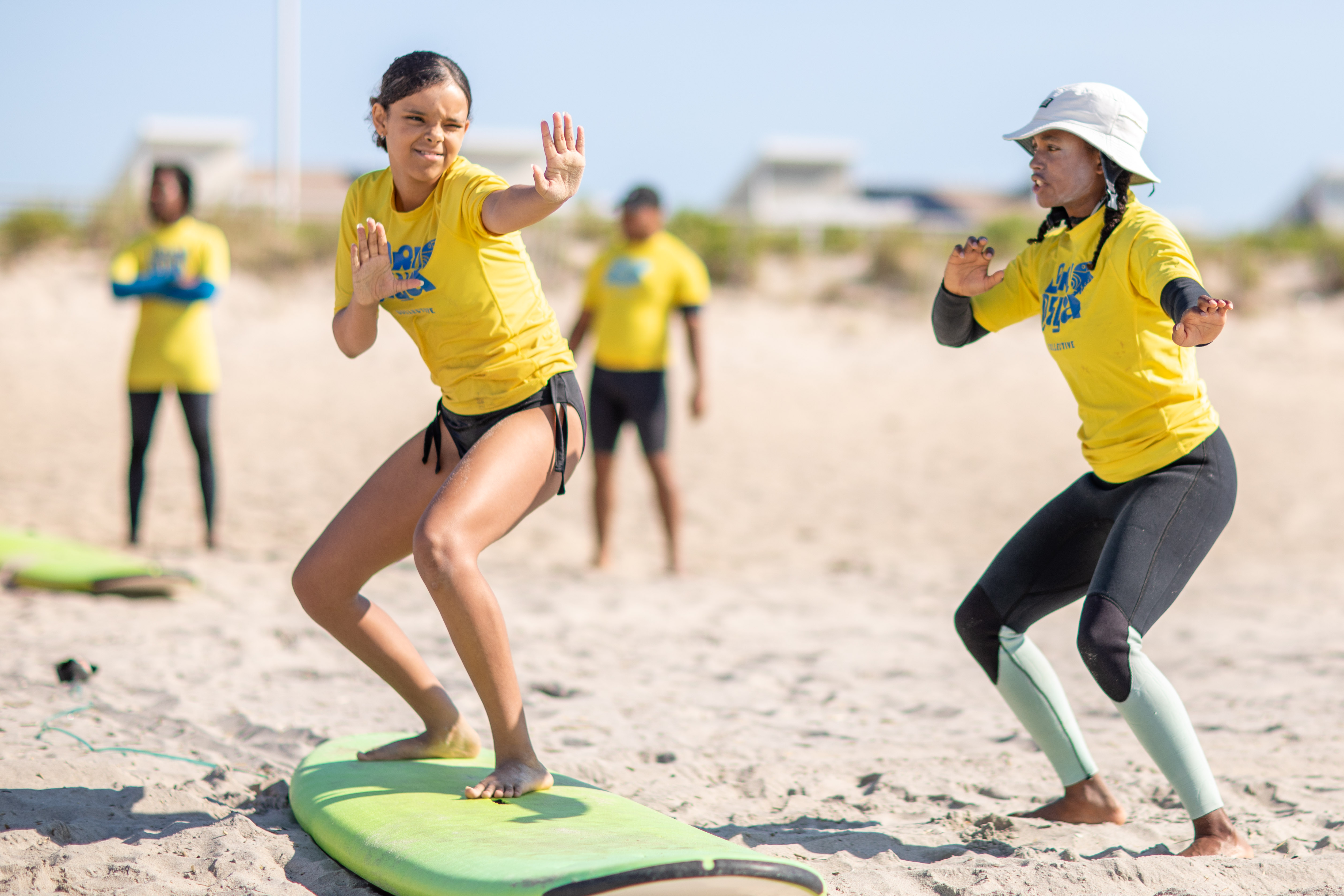
Laru Beya Collective
- New York
- Website: larubeyacollective.com
- Grant amount: $20,000
The Laru Beya Collective, a Black- and mostly female-led organization, offers free surf therapy and wellness programs through traditional Garifuna Afro-Indigenous healing methods. The organization is named “Laru Beya,” which means “on the beach” because the Garifuna founders want to share their respect for the ocean as a source of physical and emotional nourishment and healing energy. Laru Beya Collective’s efforts address gaps in local infrastructure by ensuring access to critical water safety training and mental wellness resources. Its programming builds community, develops confidence, and cultivates resilience through structured activities that prioritize mental health and self-empowerment. It allows youth (ages 8–25) from Far Rockaway and New York City to participate in and benefit from Summer Surf Therapy, Year-Round Surf Therapy, Beach Cleanups, Environmental Stewardship, and Mentorship Programs.
Localogy
- New Mexico
- Website: localogy.org
- Grant amount: $10,000
Vida Camp, Localogy’s summer day camp program, connects youth in Northern Taos County with the local foodshed, watershed and resilient culture. The camp fosters stewardship and respect for lands, waters, and cultural heritage through an immersive place-based curriculum unique to the local youth and landscape. Campers (ages 5-12) explore local farms, ranches, acequias and streams. They become active stewards of vital systems through fun and engaging service learning, which includes trout habitat restoration, working on the acequias, harvesting produce for the North Central Food Pantry, and mural painting downtown with community members as guides. Tuition is on a sliding scale; transportation and lunches are provided.
Lower Brule Sioux Tribe
- South Dakota
- Website: lowerbrulewildlife.com
- Grant amount: $10,000
The mission of the Lower Brule Sioux Tribe’s Department of Wildlife, Fish and Recreation is to conserve, protect and enhance the wildlife, fish and recreational resources of the Tribe. The department holds over 20,000 acres of land for wildlife conservation purposes, including black-footed ferret recovery, reintroductions of wild turkey, buffalo and elk, as well as native wildlife species. It also manages several outdoor recreation areas with boat ramps, swimming beaches, playgrounds and other facilities. The Department of Wildlife, Fish and Recreation's Playground and Recreation Area Enhancement Project will improve safety, aesthetics, and enjoyment in key outdoor recreation areas and community spaces by replacing aging playground borders with modern, safe alternatives; resurfacing the playgrounds and adding playground equipment for safety; and restoring the swim beach at Wata Onazin. This effort supports the Tribe’s commitment to providing safe, welcoming, and lively recreational facilities that encourage outdoor engagement for all tribal members and visitors.

Mountain Dreamers
- Colorado
- Website: mountaindreamers.org
- Grant amount: $20,000
Mountain Dreamers' (MD) Oso Snowboard program focuses on serving BIPOC and immigrant youth in rural Summit County, CO, addressing the accessibility of snowsports like skiing and snowboarding. Despite a BIPOC student population of 44% in the Summit School District, only 5.6% of skier visits are from Latino individuals, reflecting broader trends in the U.S. where BIPOC communities represent only 12.9% of ski visits. This is especially disturbing since Summit County is home to four world class ski resorts. Skiing and snowboarding are vital for social life in the area, but increasing participation means dismantling the social, cultural, and financial barriers that BIPOC youth face. Oso nurtures youth outdoor leaders, advocates for policy changes, and designs sustainable programs. Its goal is to integrate local youth and families into outdoor environments like Colorado mountain ski resorts, ensuring sustained access beyond program durations by breaking down the cultural, financial and gear barriers. At no cost, Oso provides a series of beginner group lessons to local young people (18-24) and adults who have never been able to access this opportunity. This initiative equips the youth with tangible skills, bolstering confidence and leadership abilities and resulting in positive ripple effects on their families and social environments.
Museum of the Rockies
- South Dakota
- Website: museumoftherockies.org
- Grant amount: $20,000
Of the estimated 1.06M residents of Montana, more than 67K are American Indian or Alaska Native. The Blackfeet Indian Reservation alone has a population of 9,523 individuals (with a poverty rate of 40%). As such, societal issues often create barriers and prevent Indigenous students from exploring and engaging with the science, technology, engineering and math (STEM) fields, leaving a gap in their educational journeys. Museum of the Rockies (MOR), in collaboration of Blackfeet tribal elders and Browning High School teachers, are addressing this issue by developing a program that provides Blackfeet high school students hands-on learning opportunities in science and paleontology. The Blackfeet Egg Mountain Paleontological and Cultural Discovery Camp will take place within the Willow Creek Anticline Two Medicine Formation where Egg Mountain and MOR's 553-acre research site is located. These Indigenous lands are the ancestral homelands of the Blackfeet Nation and are the location of the first discovery of dinosaur eggs and embryos in North America. The goal of the program is to inspire Blackfeet youth to explore new career paths in paleontology and other STEM-related fields through virtual and in-school programming and hands-on experiences in the field (working with experts from MOR) while reconnecting them to their nation’s history with the land.
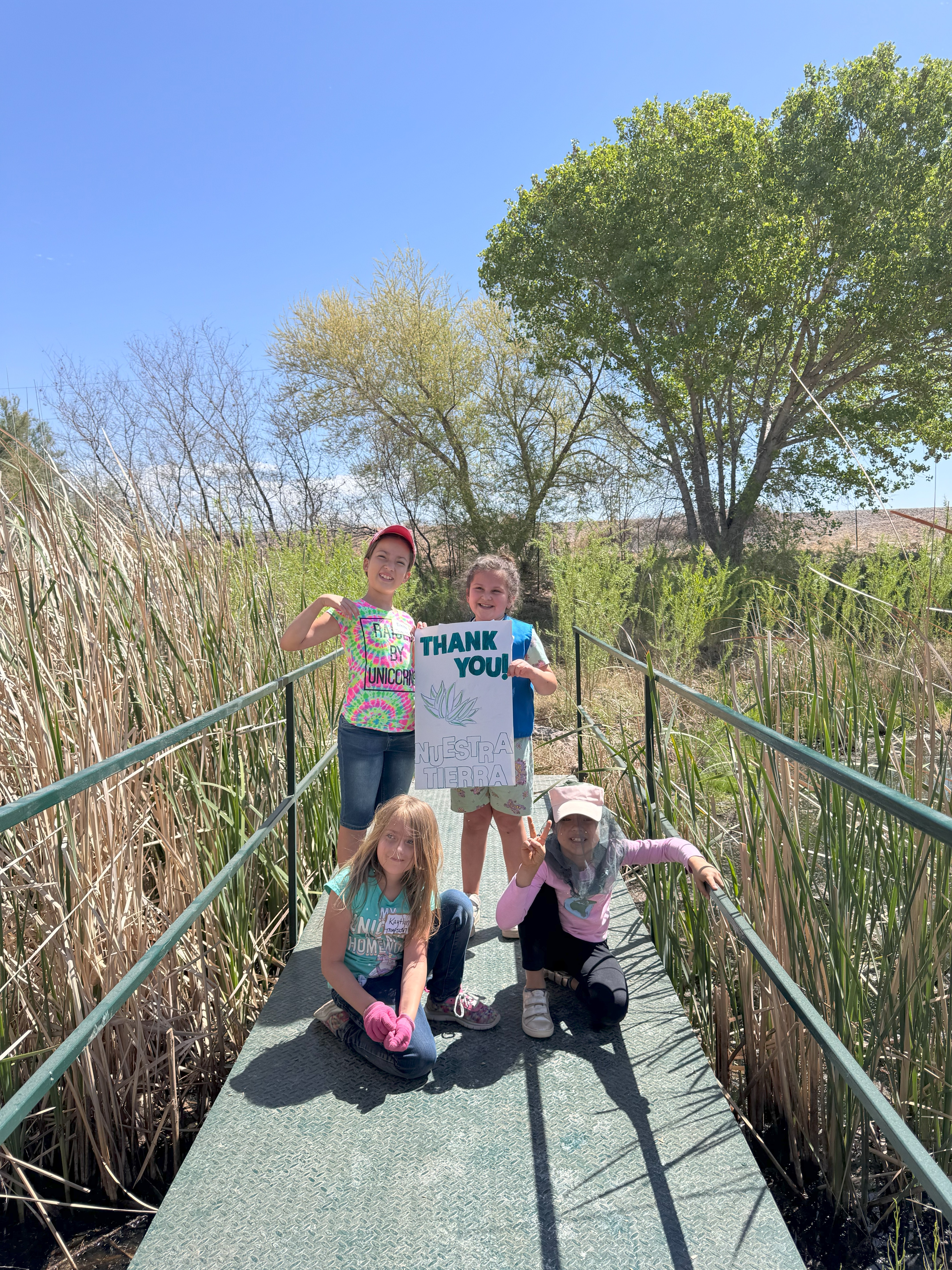
Nuestra Tierra Conservation Project
- New Mexico
- Website: nuestra-tierra.org
- Grant amount: $30,000
When a child catches their first trout, sees an eagle take flight, or explores a backcountry trail, they light up, they learn something new, they connect. But it's not always easy to get outside. Nuestra Tierra Conservation Project (NTCP) was created with the sole purpose of connecting New Mexico youth to the places they might not otherwise see—public lands, urban green spaces, mountains, deserts, and rivers. Nature Niños (NN) is an entry point to the outdoors for communities who experience "nature nerves" from a lack of exposure. NTCP and NN partnered to create Nuestro Futuro, a program that advances equity, access, and representation in the outdoors for all New Mexico youth through empowerment and engagement in outdoor recreation and education. Nuestro Futuro is expanding learning opportunities inside and outside the classroom. Its Albuquerque program directly serves Title 1 schools in South Valley with school-time outdoor experiences, which are tailored to the needs of each individual school partner to ensure that the students are having their needs and interests met in ways that are culturally responsive. Project opportunities vary from six-week long fishing and sustainable eating experiences to public land hikes that work to educate the youth on regional flora and fauna. A main component of all programming is the use of nature journaling, which fosters a deeper connection with the natural world and enhances various aspects of youth well-being.
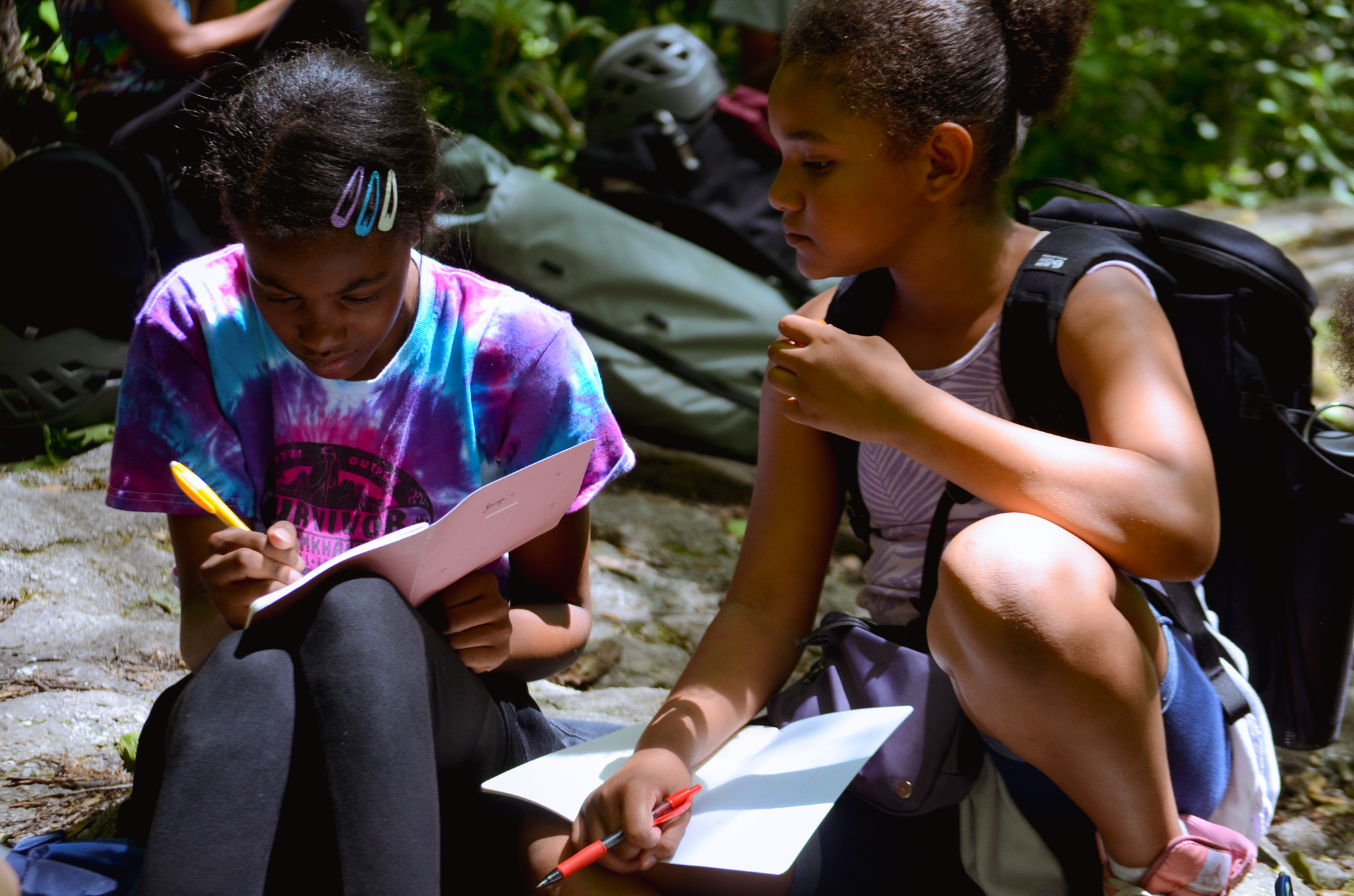
Outdoor Inclusion Coallition
- Pennsylvania
- Website: theoic.org
- Grant amount: $20,000
Systemic barriers such as financial constraints, lack of representation, and limited access to safe outdoor spaces continue to prevent youth from marginalized communities from engaging in nature-based activities that foster leadership, conservation ethics, and personal development. The Outdoor Inclusion Coalition (OIC) is working to address these barriers through its Urban Wilderness Program (UWP) and Youth Equity in Snow Sports (YESS) programs.
UWP is an eight-week summer camp that blends recreation with conservation education, fostering a lifelong appreciation for nature. By participating in activities such as camping, mountain biking, climbing, fishing and more, students develop outdoor skills while also engaging in ecological studies that include tree assessment, water quality analysis, and GIS mapping. UWP leverages play as a mechanism to normalize environmental stewardship, ensuring that youth enjoy nature and understand how to protect and sustain it. YESS, a collaboration between the OIC and Gilson Snow, aims to increase representation in snow sports. This initiative merges artistry and craftsmanship by enabling youth to handcraft their own custom designed boards. Participants gain insight into the engineering and artistry behind their equipment and embrace their identities as creators. YESS serves as a catalyst for inclusion, self-expression, and confidence in the snow industry. Both initiatives advance equity, conservation, and outdoor recreation access for historically underrepresented youth. These programs provide cohort-based experiential education, equipping students with technical skills, environmental awareness, and creative expression at no cost to families.
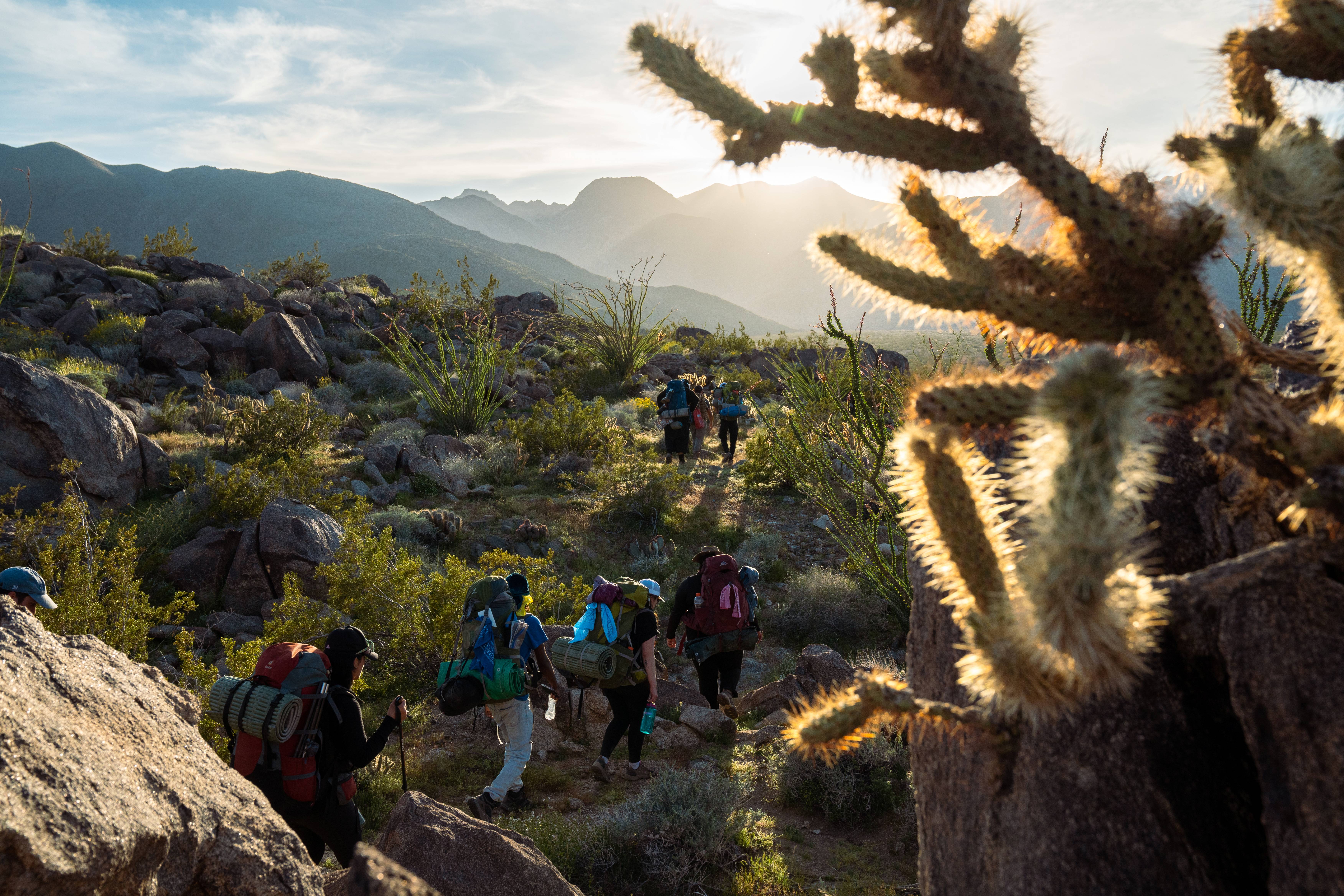
Outdoor Outreach
- California
- Website: outdooroutreach.org
- Grant amount: $30,000
Outdoor Outreach reaches youth, ages 9-24, from communities characterized as “under-parked” (having less than three acres of parkland per 1,000 people and a median household income below $45,000). Seventy-five percent of Outdoor Outreach’s youth participants report that they lack transportation to outdoor spaces; 44% are not aware of green spaces near their home; and 13% report that gangs or crime make close-to-home green spaces unsafe. Outdoor Outreach provides adventure-based outdoor programs for young people through adventure-based youth development programs. With multiple opportunities to surf, bike, kayak, or climb each year, youth gain more than access to outdoor recreation—they share new experiences and tap into their strengths, while building a support system of peers and mentors who believe in them and show them they matter. To accomplish this, Outdoor Outreach partners with 50+ Title I schools and social service agencies. It serves San Diego County youth (from low-income communities and other groups, including Native youth, medical and juvenile justice-involved youth, LGBTQIA+ youth, youth from military families, and those from immigrant families, who experience disproportionate levels of mental health challenges in comparison to the general population by directly removing barriers) by providing outdoors-based programs and all necessary equipment, transportation, instruction, meals and snacks to participants at no cost.
Purgatoire Watershed Partnership
- Colorado
- Website: purgatoirepartners.org
- Grant amount: $15,000
The Purgatoire Watershed Partnership (PWP) is an environmental conservation organization, based in Trinidad, that serves all community members across the Purgatoire River watershed. Its mission is to restore, protect, and enhance the Purgatoire River Watershed through stakeholder engagement, collaboration, education, and on-the-ground work for the benefit of all. In the past few years, PWP has been working closely with the Youth Club of Trinidad to bring outdoor engagement and education opportunities to local youth. The youth gain outdoor skills and knowledge in new environments.
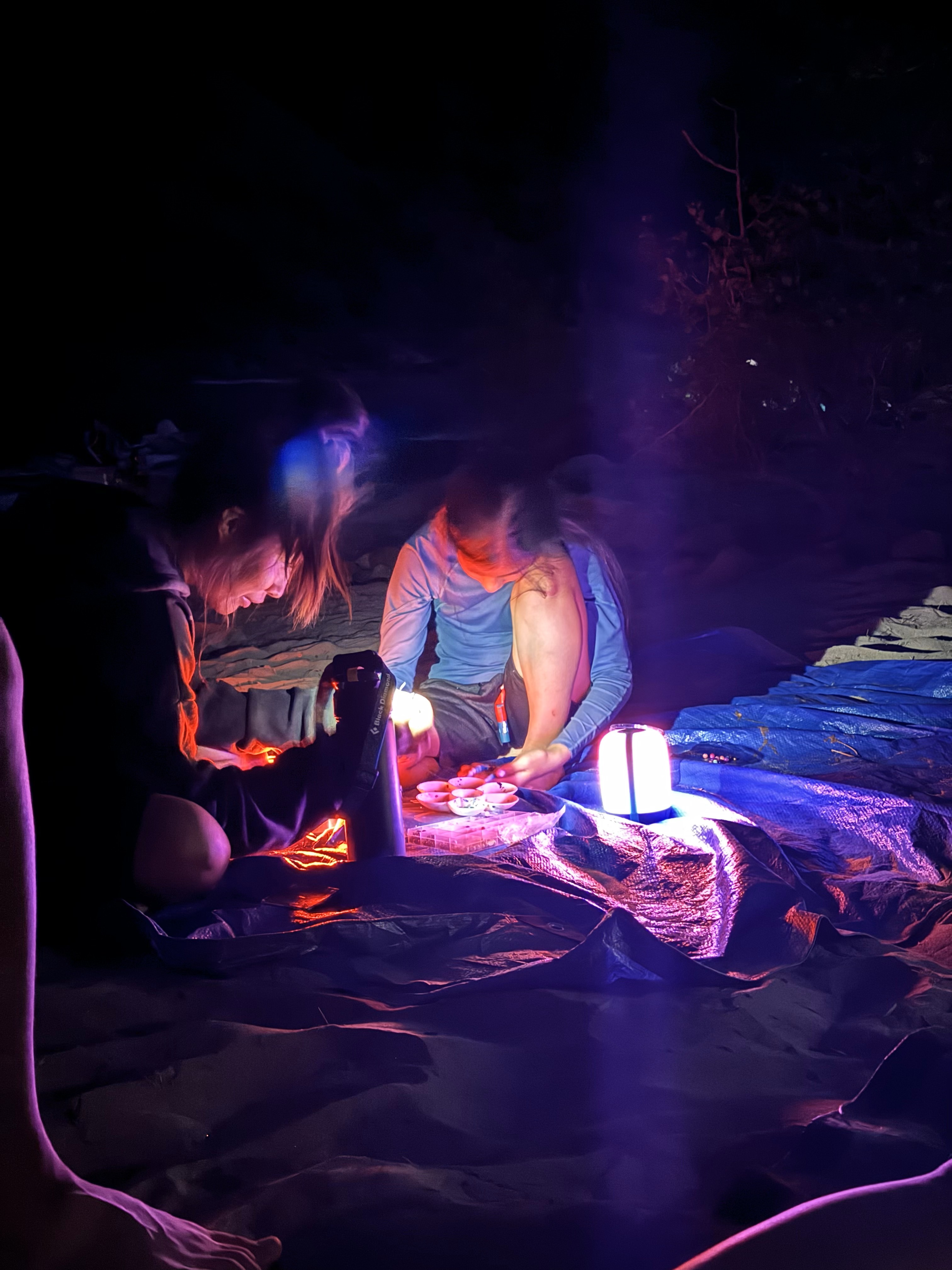
River Newe
- Idaho
- Website: rivernewe.org
- Grant amount: $30,000
River Newe works to overcome Shoshone-Bannock disconnection to traditional knowledge due to limited access to homelands and learning experiences on land. River Newe supports Shoshone-Bannock youth through experiential, river-based programming on traditional and historic tribal lands. Students participate in cultural and river-based activities to exercise treaty rights, impact confidence and identity, and build skills through river-based learning. Through a Newe-centered approach, this program increases representation and creates spaces of equity through learning experiences on homelands with Shoshone-Bannocks, Indigenous, and minoritized communities on and off river landscapes.
.jpg)
SheJumps
- Utah
- Website: shejumps.org
- Grant amount: $20,000
SheJumps works to increase the participation of women and girls in outdoor activities. Its Into the Canyon Program provides immigrant and refugee girls in the Salt Lake Valley with accessible outdoor recreation opportunities. While the program traditionally focused on learn-to-ski sessions in the Wasatch Mountains, itis expanding to ioffer year-round outdoor recreation activities that include skiing, rock climbing, and hiking. SheJumps collaborates with Hartland Community 4 Youth & Families (HC4YF) to host a series of youth outdoor adventure programs that create no-cost opportunities for HC4YF girls to experience the outdoors each year. The program also serves as a model for replication at other SheJumps sites across the U.S., including SheJumps’ youth outdoor program with the Mountain View Boys & Girls Club in Anchorage, Alaska.
SHRED Foundation
- New York
- Website: shredfoundation.org
- Grant amount: $30,000
The SHRED Foundation identifies a critical need within the communities of Newburgh and Albany where BIPOC youth face significant barriers to recreational sports participation, notably snowboarding. SHRED's comprehensive approach aims to dismantle economic and social barriers, enabling participants to enjoy the mental and physical benefits of snowboarding and gain valuable leadership and teaching skills through the instructor training program. This foster a sustainable, inclusive environment within the snowboarding community, encouraging participants to become mentors and role models for future generations. SHRED provides comprehensive support, including access to gear, mentorship, and career opportunities in snowboarding to ensure that the transformative benefits of this sport (including improved mental health, enhanced decision-making, and increased confidence) are accessible to all—fostering a more inclusive and equitable environment for personal and community growth, and significantly impacting the lives of the youth SHRED serves. Ultimately, this contributes to a more diverse and equitable snowboarding culture.
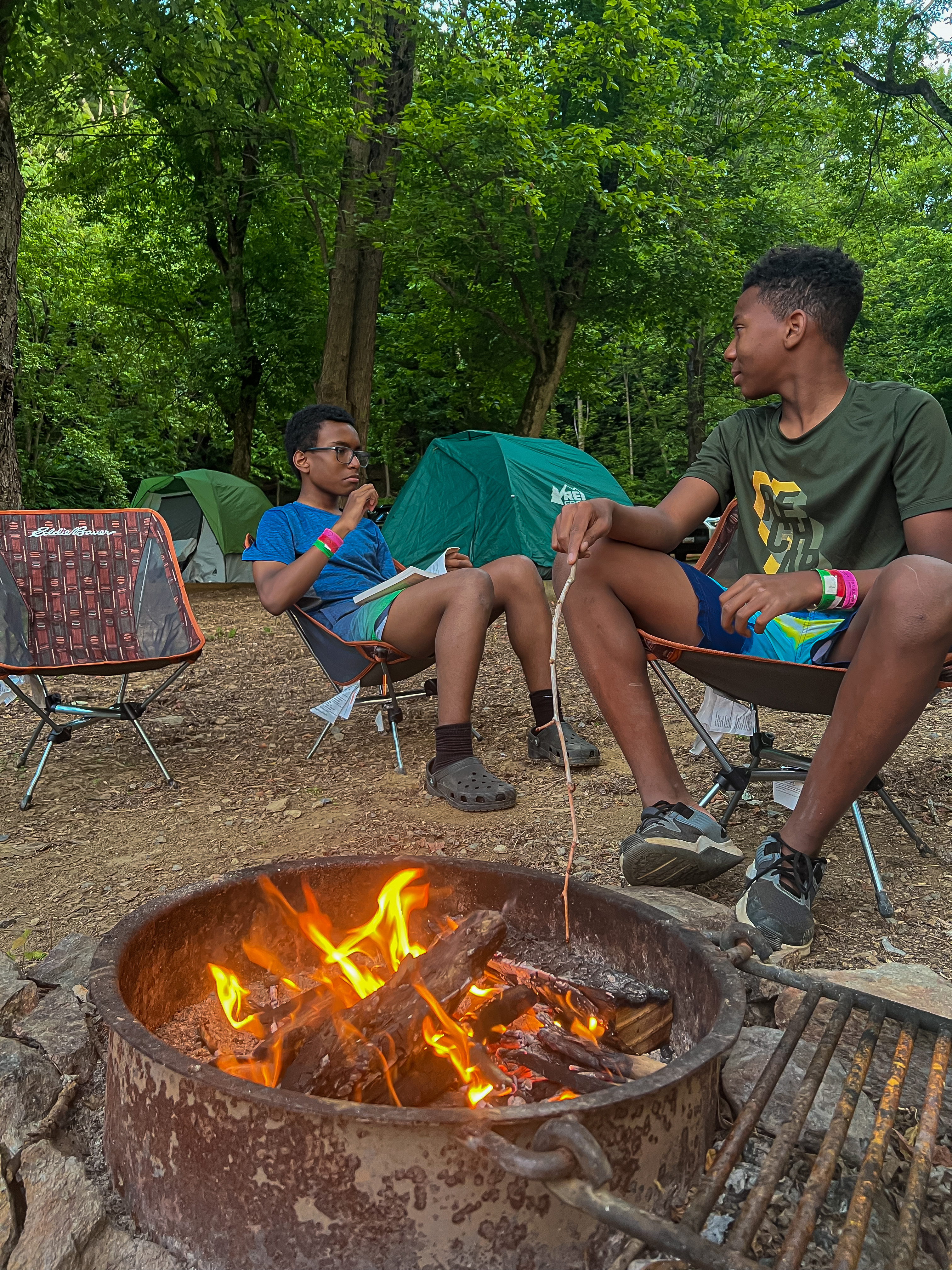
Soul Trak Outdoors
- Washington, D.C.
- Website: soultrak.com
- Grant amount: $20,000
SoulTrak Outdoors aims to address the underrepresentation of people of color in the outdoor leadership field by providing college students of color with leadership opportunities and certifications in outdoor recreation. This gap in leadership access is particularly evident in the Delaware, Maryland, Virginia (DMV) area, where community members of color often lack the resources and mentorship needed to pursue careers in outdoor spaces. Soul Trak’s College Ambassador Cohort engages students in meaningful leadership roles, enabling them to mentor and guide youth of color through outdoor activities. Participants in this year-round program gain outdoor leadership experience, environmental education, and mentorship, while guiding more than 300 youth in the greater DMV area through activities such as hiking, paddling, climbing, and environmental education. The program not only builds leadership skills in the ambassadors but also increases access and commitment to nature and outdoor experiences for youth in the region. The ambassadors and the youth participants benefit from increased exposure to outdoor recreation, mentorship, and the development of skills that foster both personal and community growth. Ambassadors also are provided opportunities for certifications in outdoor skills, preparing them for future leadership roles in the sector. Through this initiative, Soul Trak Outdoors ensures more diverse leadership representation in outdoor spaces while encouraging youth to engage in nature and become future stewards of public lands.
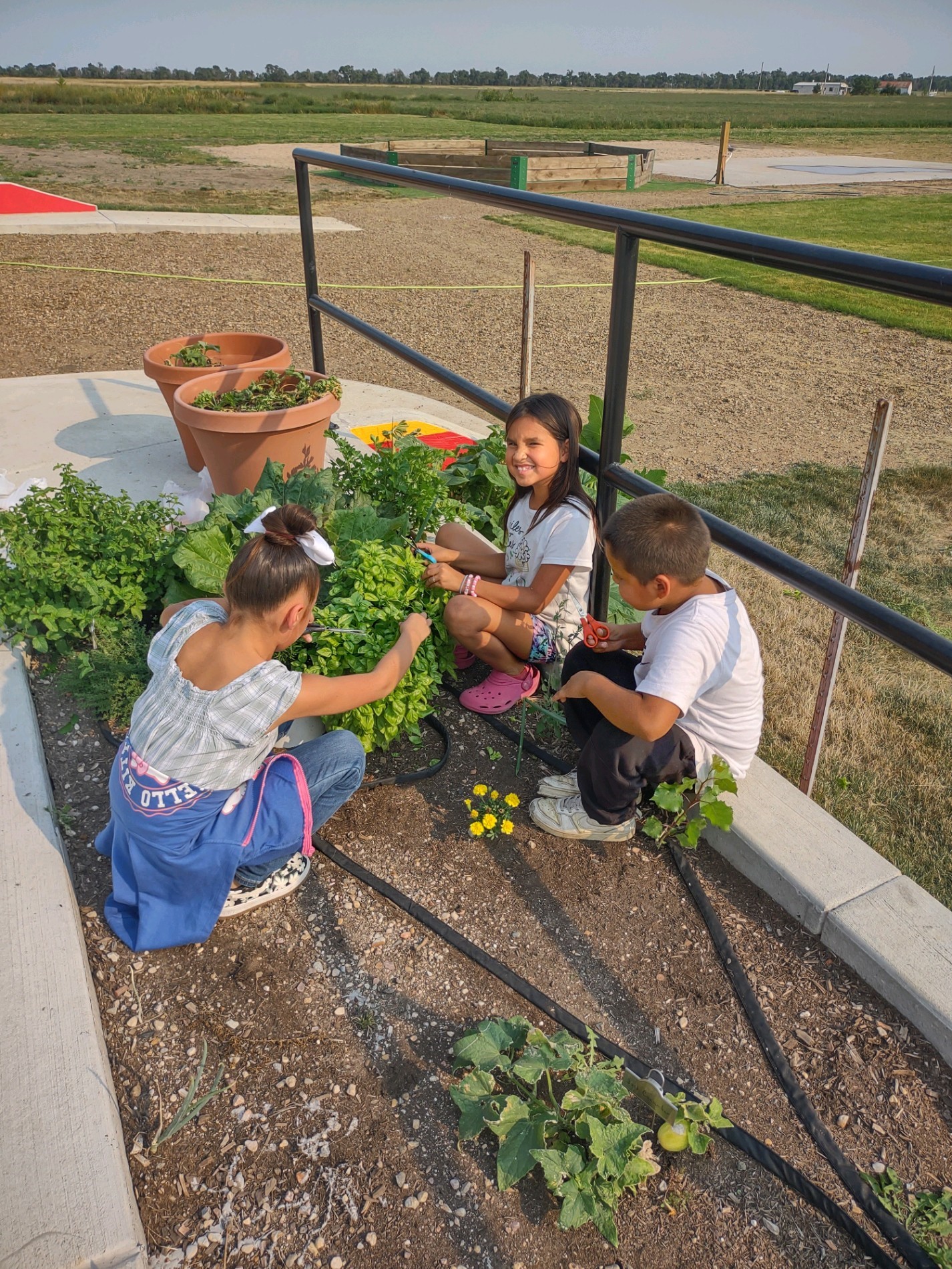
Tokata Youth Center
- South Dakota
- Website: d-w-m.org
- Grant amount: $15,000
The Tokata Youth Center is located on the Crow Creek Sioux Reservation in South Dakota, with most residents residing in Buffalo County. This is one of the poorest counties in the United States. TYC is developing its outdoor space for its youth. Recently, TYC built a garden and a sports field. TYC is now in the process of constructing a kickball field, sand volleyball, gaga ball pit, drinking fountain, and concrete slab for picnic shelter and picnic tables. The picnic shelter and tables will provide students with a cool and shaded place to get a drink and rest between games. This sheltered space allows TYC to provide more outdoor activities during the hot summer months, where they would normally need to go inside to help keep the students cool.
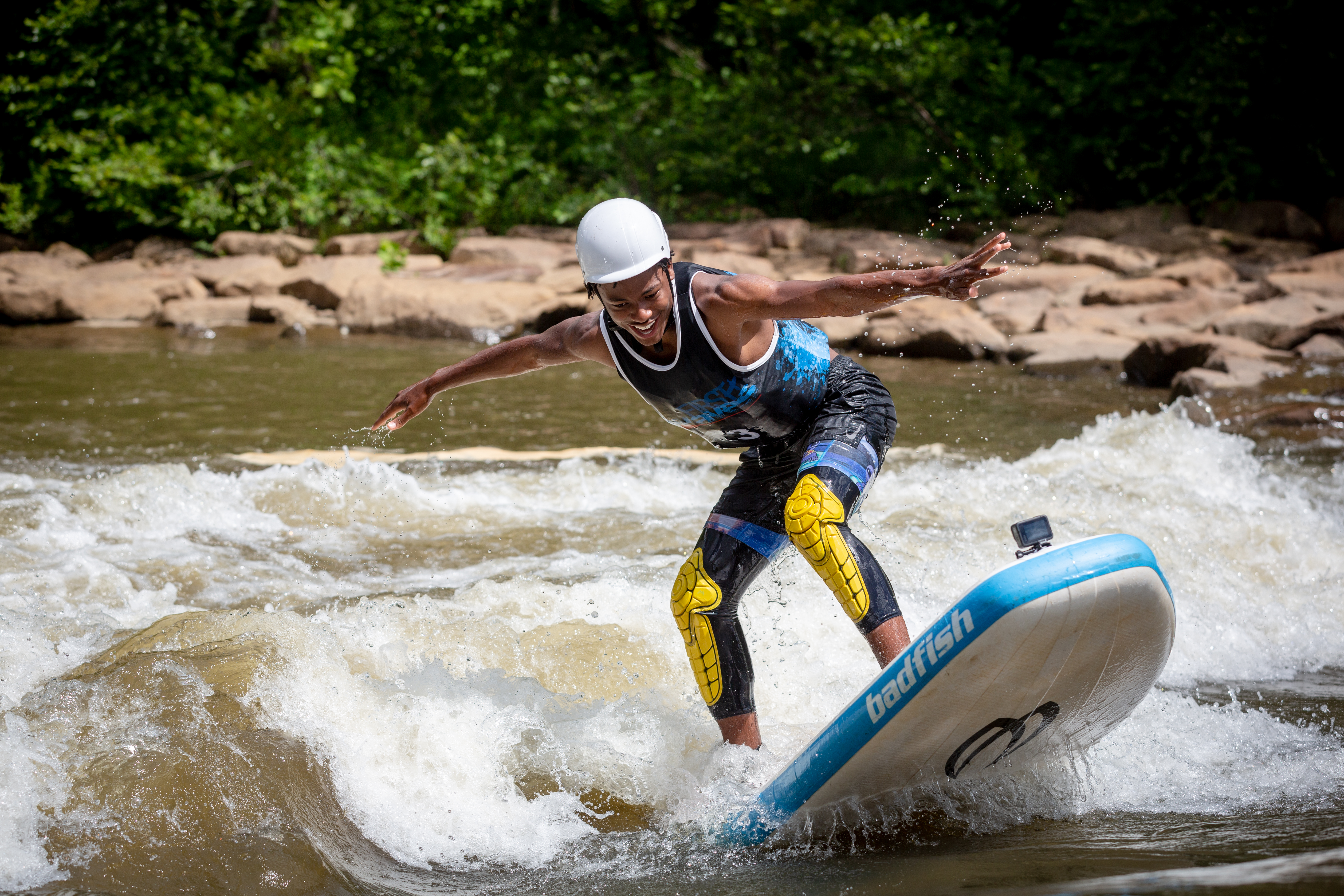
The Watersmith Guild
- Pennsylvania
- Website: watersmithguild.org
- Grant amount: $30,000
Pennsylvania’s waterways provide a perfect canvas to engage youth in outdoor recreation and conservation. Lack of access, however, has limited BIPOC and underserved communities from benefitting from these resources. Moreover, watersheds in these communities have suffered disparate levels of pollution and the effects of climate change resulting in reduced quality of life for residents. Finally, these Environmental Justice areas are disproportionately impacted by childhood obesity, sedentary behavior, and the risk of drug and alcohol use. The Watersmith Guild’s origins are with the foundation of First Waves, a first-of-its-kind program that combined standup paddleboarding, river surfing, and the art of filmmaking as a catalyst to inspire conservation of local waterways and mentorship for these youth. In 2014, the inaugural project included transformative elements of outdoor adventure, environmental education, and conservation actions that fostered love and appreciation for the outdoors and improved the lives of students in areas with limited opportunities and access. Youth participants learned to become proficient paddlers, spearheaded river cleanups, and created documentary films to inspire others. Through paddleboarding and outdoor recreation, First Waves provides a blueprint for low-impact and widely available forms of exercise that can be practiced over a lifetime and inspires love and appreciation for the outdoors. Furthermore, the programs empower youth with education in the fields of science, technology, engineering, arts, and mathematics.
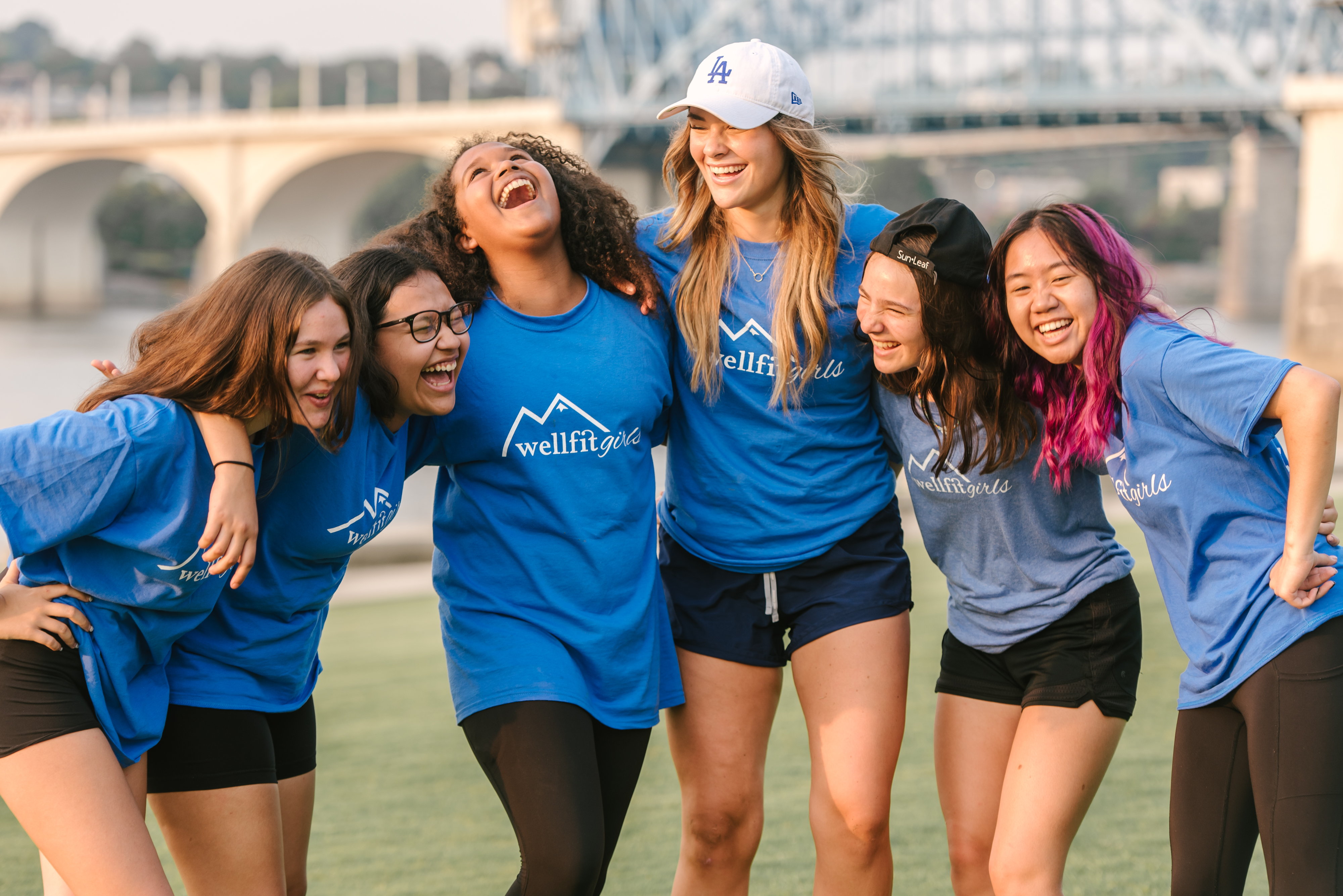
Wellfit Girls
- Florida
- Website: wellfitgirls.org
- Grant amount: $30,000
The need for empowering programs for middle school girls has never been more critical. During this formative adolescence period, girls grapple with issues related to self-esteem, identity formation, and social dynamics, which can significantly impact their academic performance, mental health, and overall well-being. Research indicates that girls face barriers to leadership and self-empowerment, including societal expectations, gender stereotypes, and limited access to supportive resources and role models. Wellfit Girls’ mission is to inspire, challenge and empower teen girls to climb high in all areas of life through transformational leadership programs. Its Wellfit Adventure Camp (WAC) program aims to address the pressing societal issue of adolescent mental health and well-being by providing a supportive and inclusive environment where girls explore their potential, build essential life skills, and develop a strong sense of self-confidence and resilience through experiential learning, mentorship, and outdoor exploration. WAC benefits individuals and contributes to broader societal goals of promoting gender equity, fostering diversity, and cultivating the next generation of change makers. By engaging in outdoor adventures, team-building activities, and meaningful discussions, participants benefit from enhanced self-esteem, improved emotional regulation, and strengthened social connections. Ultimately, the goal is to equip young girls with the tools and skills they need to navigate adolescence with resilience and thrive in all aspects of their lives.
.jpg)
West Atlanta Watershed Alliance
- Georgia
- Website: wawa-online.org
- Grant amount: $30,000
The West Atlanta Watershed Alliance (WAWA) is dedicated to growing a cleaner, greener, healthier, and more sustainable West Atlanta. Its mission is to improve the quality of life within the West Atlanta Watershed by protecting, preserving, and restoring the community’s natural resources. By providing a continuum of opportunities throughout the year, WAWA address the lack of outdoor-based learning programs for youth and families from African/Black, Latinx, and low-income communities. WAWA’s increases exposure to environmental-based learning activities that are also fun and accessible through four priority areas: 1) building camping skills and experiences for community members, 2) diversifying leadership in the kayaking community, 3) building systems for youth to Thrive Outside, and 4) fortifying its annual programs. In partnership with Atlanta Public Schools, the City of Atlanta Department of Parks and Recreation, and the Trust for Public Land, WAWA has also developed systemic priorities to increase access to the outdoors. During programming, WAWA youth and families gain knowledge about Leave No Trace Ethics, identification of local flora and fauna, tracking, and observation of local environmental conditions and impacts, team building, conflict resolution, and positive social interaction.
.jpg)
Wild Earth Wilderness School
- New York
- Website: wildearth.org
- Grant amount: $30,000
At the intersection of nature connection and mentoring, Wild Earth strives to help New York’s Ulster County youth understand that nature is not a concept separate and distant, but instead part of their everyday world. Through this understanding, Wild Earth instills a sense of awe and nurtures a sense of belonging to and stewardship for communities small and large. Since 2015, Wild Earth has held its Nature Connection & Experiential Education (NCEE) project in partnership with the Kingston City School District (KCSD). Led by Wild Earth’s culturally diverse staff, the NCEE project strives to meet young people where they are developmentally, building relationships through long-term mentoring and nurturing social-emotional growth through connection to the natural world and its rhythms. Over the past eight years, this partnership has grown to support K-12 students in five district schools, providing guided recess activities, afterschool programming, immersive field trips for incoming middle schoolers, and a paid eight-month internship for high school students. Based on the success of its work in KCSD, Wild Earth is expanding to serve youth in Ellenville Central School District's elementary and middle schools through access to inspiring mentors leading experiential activities in the natural world, and fostering deeper exploration, inquisitiveness, self-empowerment, and connection to community.
Youth Enrichment Services
- Massachusetts
- Website: yeskids.org
- Grant amount: $30,000
Youth of color and lower income families do not have equal access to nature and the same opportunity for impactful experiences in the outdoors as other children. These youth miss out on the physical, emotional, and psychological benefits that come from being active in the outdoors. With a mission to inspire young people through outdoor experiences and leadership opportunities that build confidence and prepare them to summit life’s challenges, many Boston families rely on Youth Enrichment Services (YES) to provide low-cost and free outdoor programs to their children and teens that offer year-round outdoor youth development and physical activity programs. YES closes the nature gap for these youth, with a priority focus on engaging youth, ages 7-18, from the high-need neighborhoods of Roxbury, Dorchester, Jamaica Plain and Mattapan, in outdoor- and sports-based positive youth development programming. Without YES, youth would not have the opportunities and access to nature. With YES, youth engage in a wide range of sports-based programming in the outdoors, from paddle sports to skiing, rock climbing, snowboarding, and more. All YES programs are no/low fee, with fees waived for youth from the lowest income families. In addition to increasing their physical activity and skills, YES helps youth set the foundation for active and healthy lifestyles. Youth also develop life skills, including the confidence to face a challenge, form relationships with supportive adults and peers, and develop a positive connection to the outdoors.
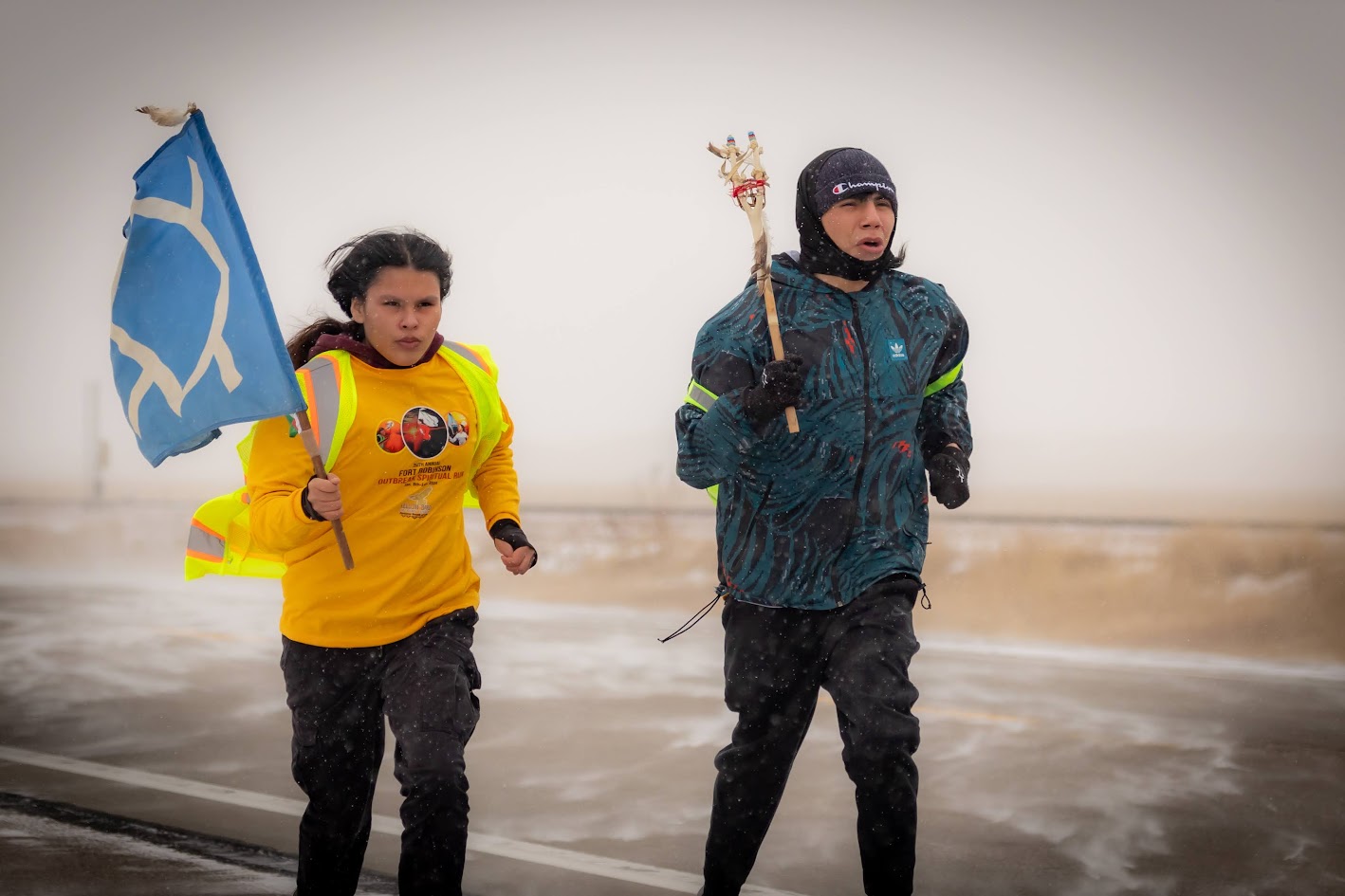
Yellow Bird Life Ways
- Montana
- Website: yellowbirdlifeways.org
- Grant amount: $15,000
Yellow Bird Life Ways works at the intersections of intergenerational trauma and healing through cultural reconnection and preservation. Its work revolves around the circular connection between youth and elders, transmitting knowledge of land, language, culture, and identity to the next generation. Yellow Bird Life Way’s programming, addresses historical and present-day trauma through reconnecting youth with Spirit and way of life. Yellow Bird Life Way’s summer Journey to the Center and its winter Fort Robinson Outbreak Spiritual Run are the primary impact areas. These trips span between 5-8 days and are immersive experiences. During Journey to the Center, youth spend almost 100% of their time in nature—hiking, swimming, and being in ceremony. They learn skills in camping such as leaving no trace, setting up and taking down a campsite and Tipi, and how to be a good relative to the plants, animals, and other beings on the land. The Fort Robinson Outbreak Spiritual Run begins on a sacred site in Bear Butte in Sturgis, South Dakota. The youth run 400 miles and are challenged emotionally, mentally, physically, and spiritually. Running in the coldest time of winter gives them a strong connection to the land. They are taught Cheyenne teachings, traditions, songs, language, and ceremony every step of the way. Elders and spiritual leaders accompany the youth. Through this intergenerational connection, the circle completes itself, and holistic community wellness and deep spiritual connection emerge.
YouthSeen
- Colorado
- Website: youthseen.org
- Grant amount: $20,000
Youth Seen works to foster and empower the social and emotional well-being of LGBTQ+ youth of color and their families. Its CampSeen summer camp was developed to address the current voids within the community around Black and Brown queer spaces. Its CampSeen’s programming offers creative and artistic spaces, outdoor connection, and wellness. Nestled in the foothills in the Rocky Mountains, for seven days, LGBTQ+ youth (ages 10-18) experience a safe, supportive environment filled with opportunities to connect with and learn from current activists and elders in the community. Participants also learn about the importance of conservation and their impact on the outdoors. The knowledge and experience garnered by these youth build support for natural resource protection, stewardship, and conservation upon which outdoor recreation depends. Youth Seen maintains contact with campers and their families throughout the year, which provides youth opportunities for continued connection with supportive LGBTQ+ adults and opportunities to develop their mentorship skills by learning about transformative healing and community accountability
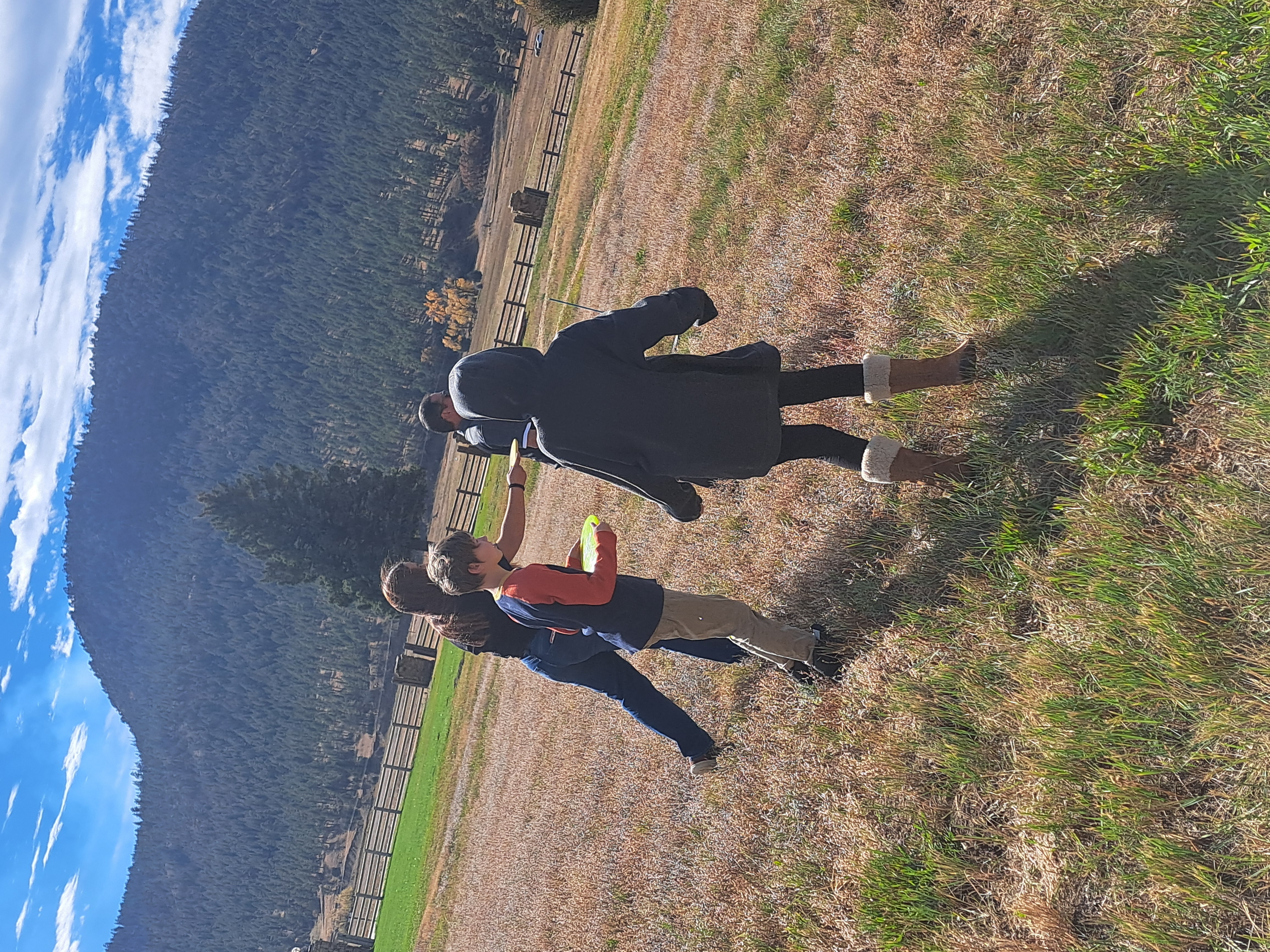
ZIA Youth Center
- New Mexico
- Website: ziayouth.org
- Grant amount: $10,000
ZIA Youth Center’s mission is to empower youth and strengthen its Raton community. The center is a hub for ZIA youth, ages 9-17, to gather daily and participate in activities that include musical instruments, a green house, arts and crafts, board games, puzzles, ping pong, air hockey and more. The center also hosts daily walks to the park, which are a highlight and help to alleviate the pent-up energy that many of the youth have. ZIA has created a new outdoor recreation program that allows the kids to experience the wonders the region has to offer. Activities include weekly trips where youth would have the opportunity to explore many of the local outdoor recreation spaces, such as Sugarite Canyon State Park, Capulin Volcano, Cimarron Canyon State Park, and Climax Canyon hiking trail. ZIA also launched a Bike Swap in Raton, as a means of getting more bicycles into the hands of youth. Volunteer bike enthusiasts are on hand with the necessary tools and kits to help fix the bikes in need of repair.
.jpg)
Zuni Youth Enrichment Project
- New Mexico
- Website: zyep.org
- Grant amount: $10,000
Strong familial, cultural, and natural resources can make the Pueblo of Zuni in northern New Mexico a special place to grow up, but many youth face the harsh realities of socioeconomic, educational, and health disparities as they transition into adulthood. The Zuni community knows that connection to its culture is a strong protective factor for its youth. Zuni Youth Enrichment Project (ZYEP) works to build that powerful connection through its flagship summer camp. At camp, Zuni youth build healthy habits, leadership development, positive intergenerational relationships, and connection to culture and community that are all needed to foster a happy and healthy future. ZYEP addresses systemic challenges and health disparities that stem from colonization and Zuni's struggle of trying to preserve its traditional ways of life and beliefs through camp activities. The youth experience activities that include physical activity, traditional dance, art, food sovereignty, and connection to land. These activities are led by positive role models that build intergenerational relationships with the youth that strengthen their connection to the Zuni community. These role models include young adults, ages 15-24, who are paid summer camp counselors. This opportunity helps develop the next generation of young leaders.
